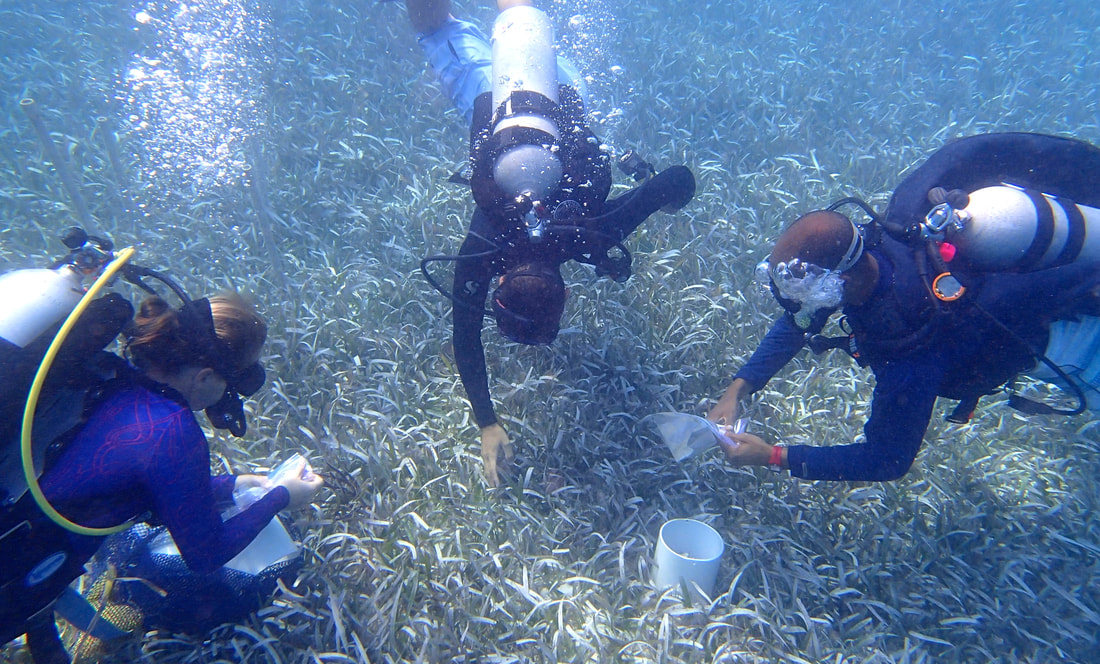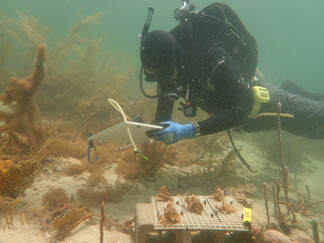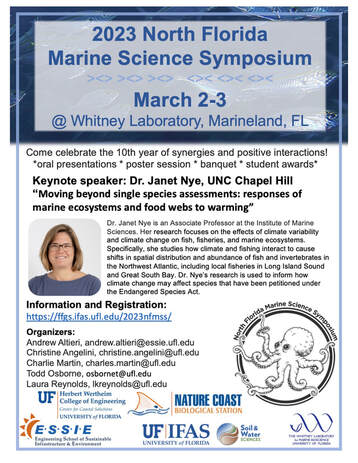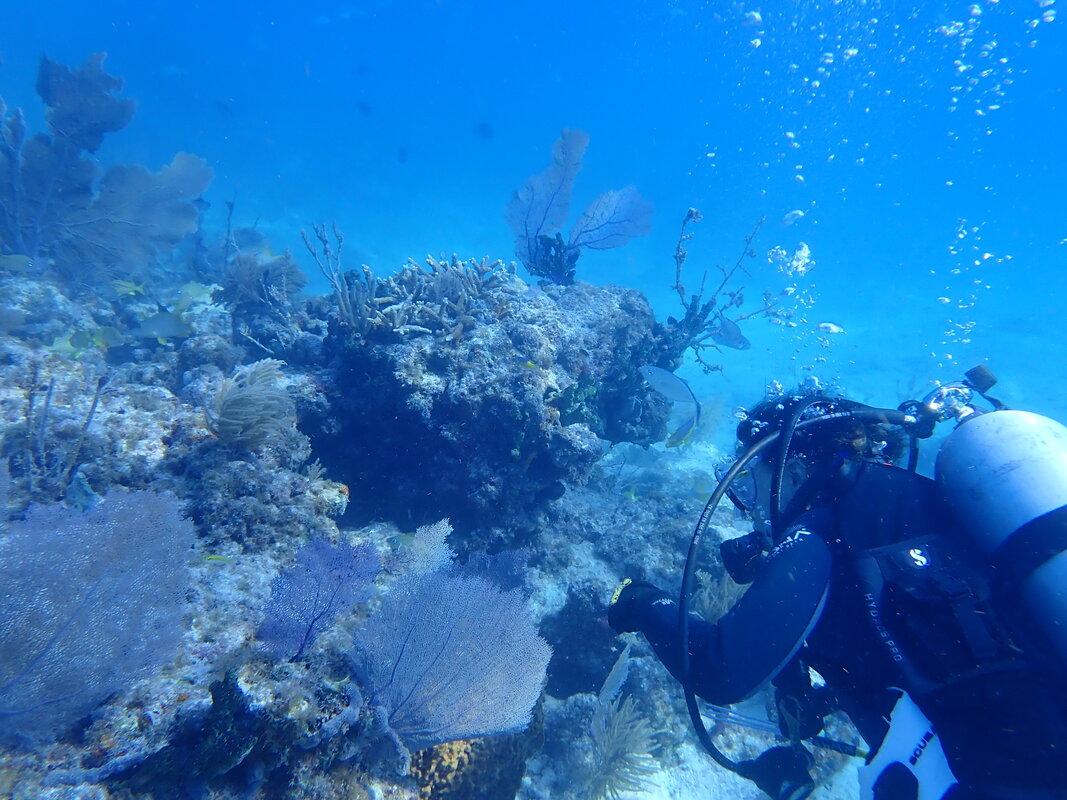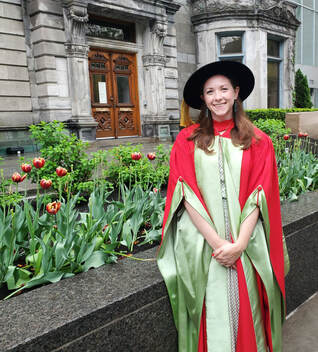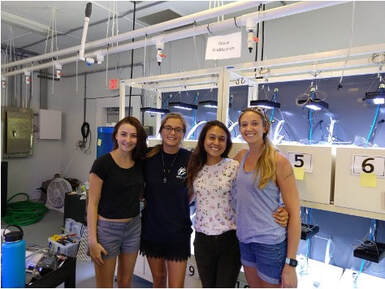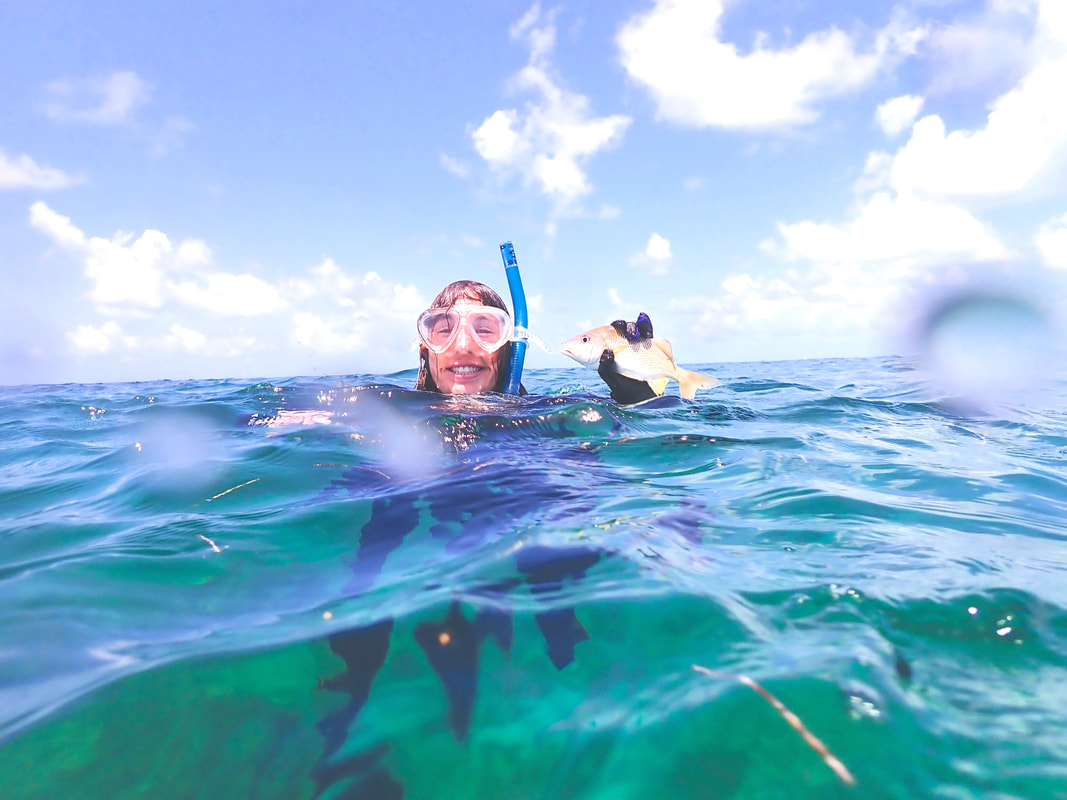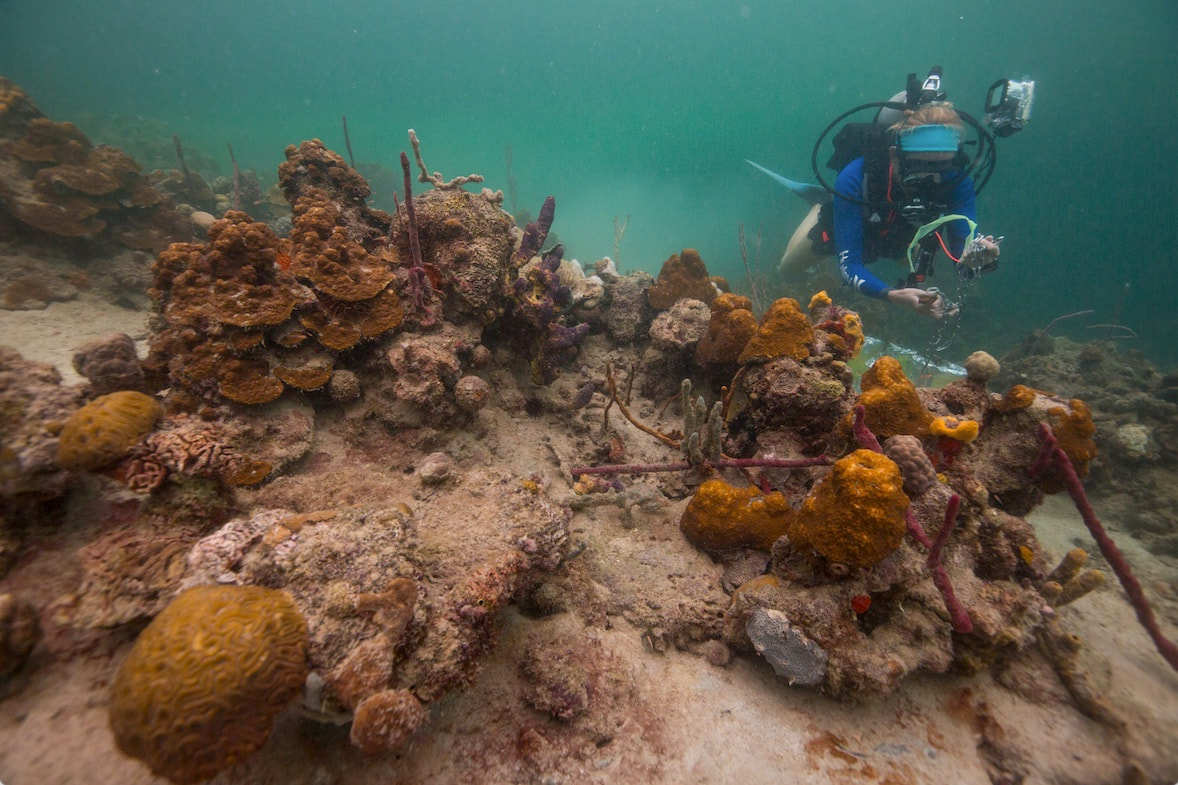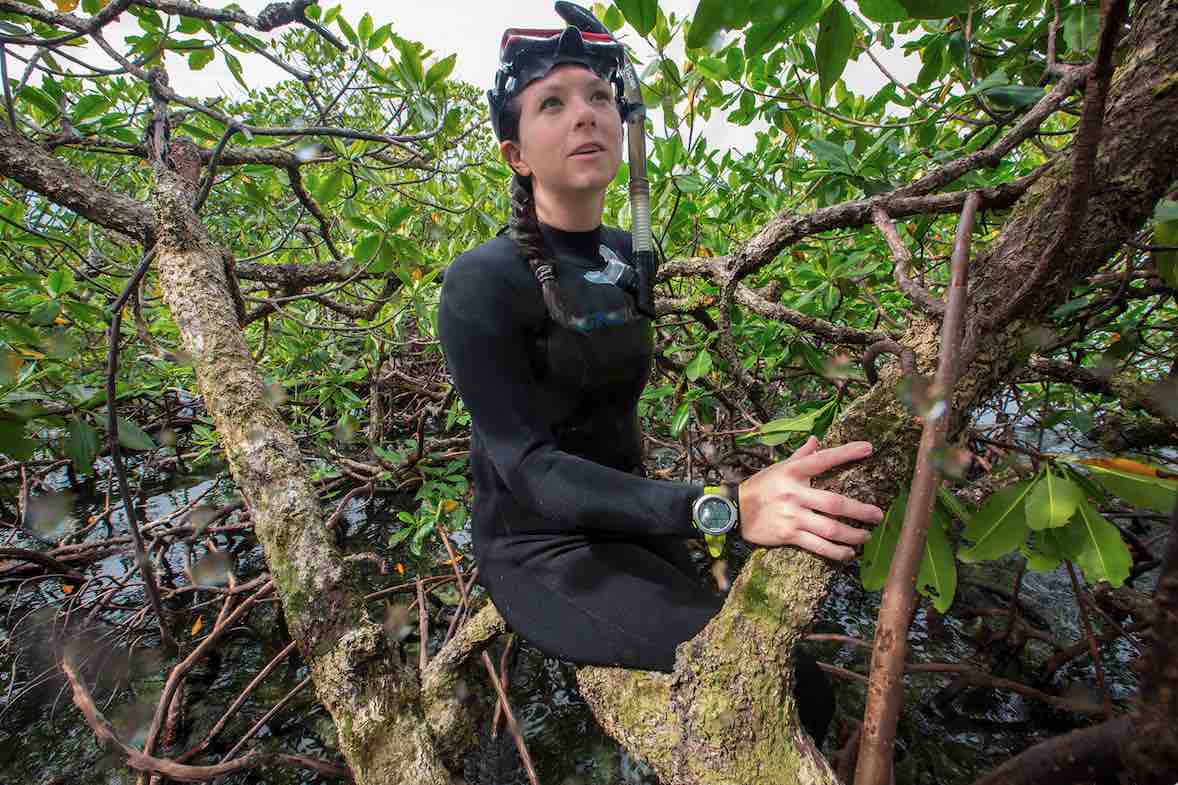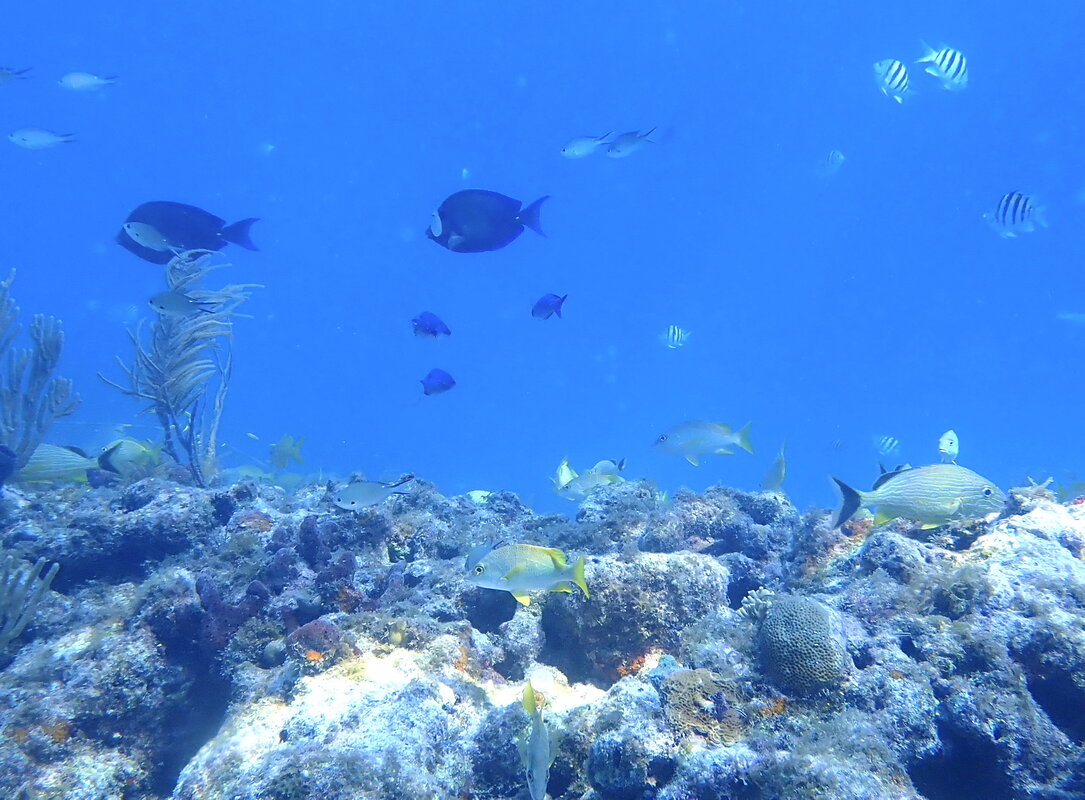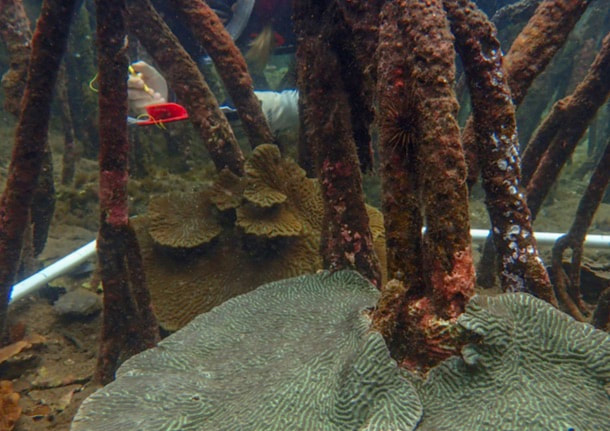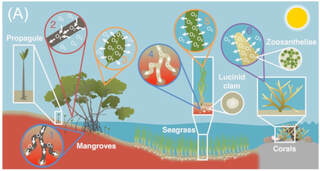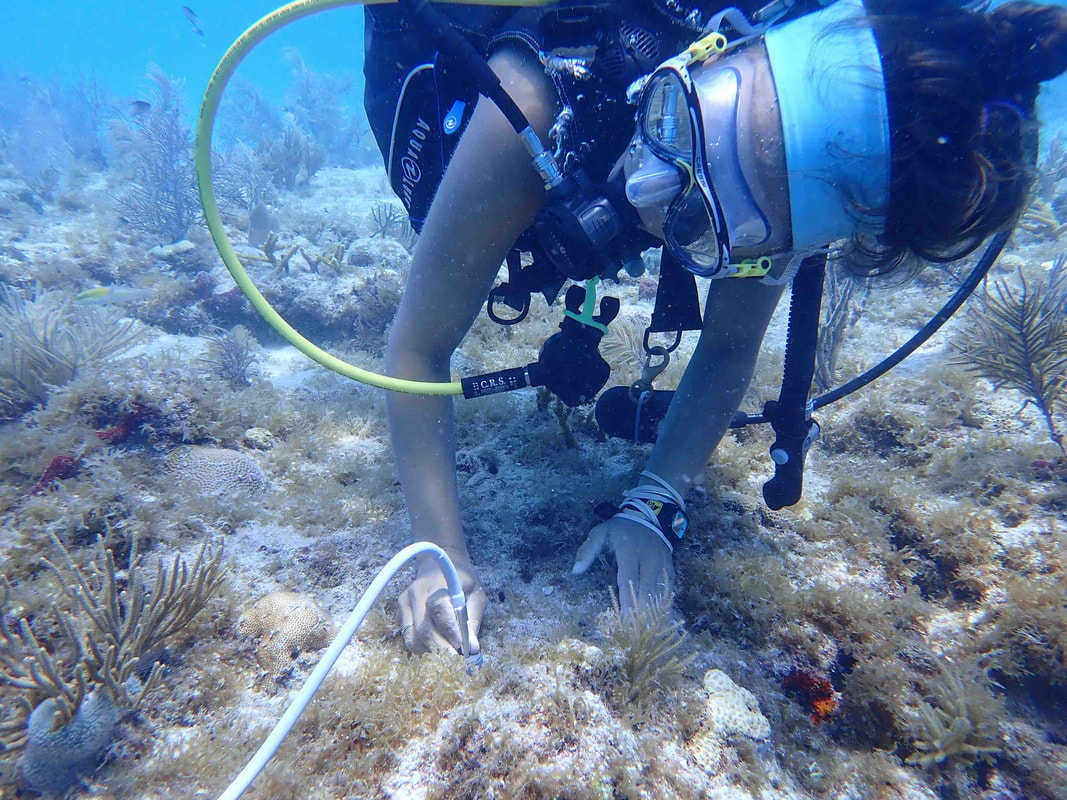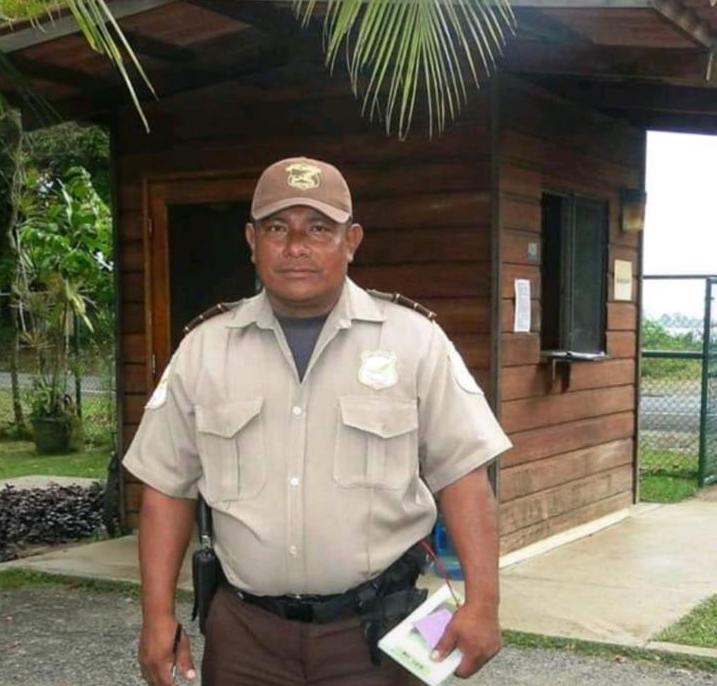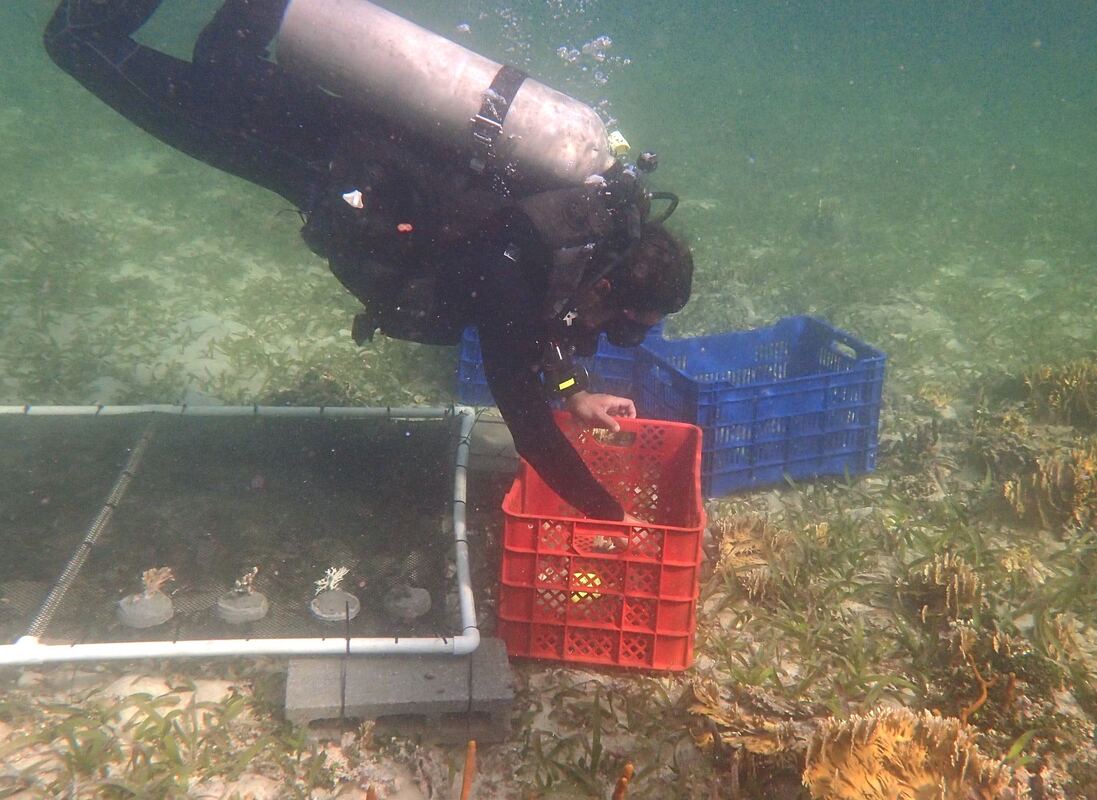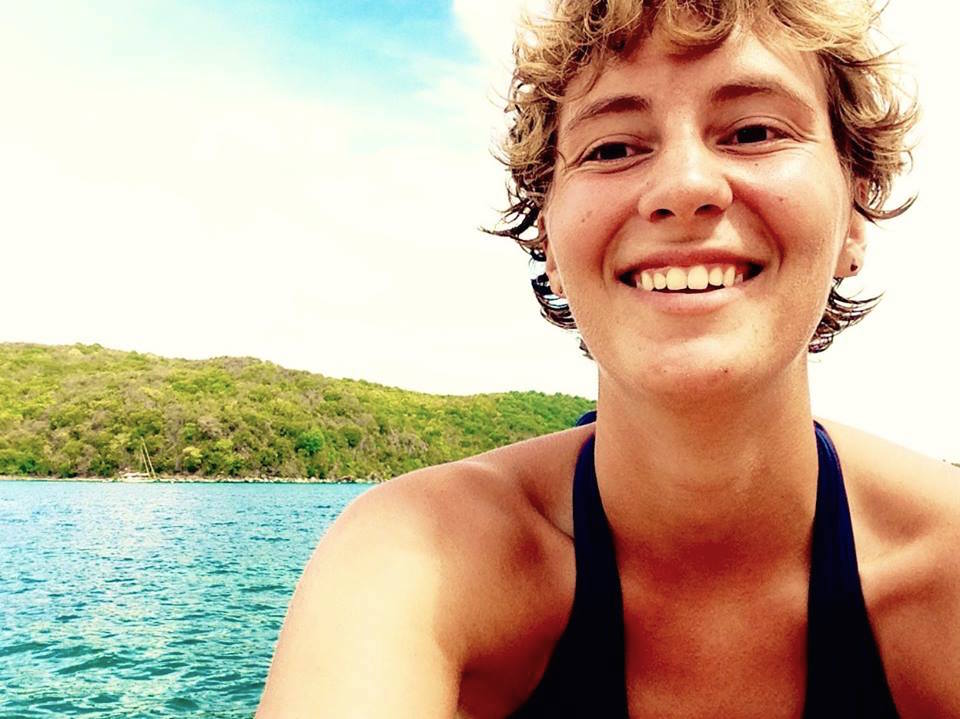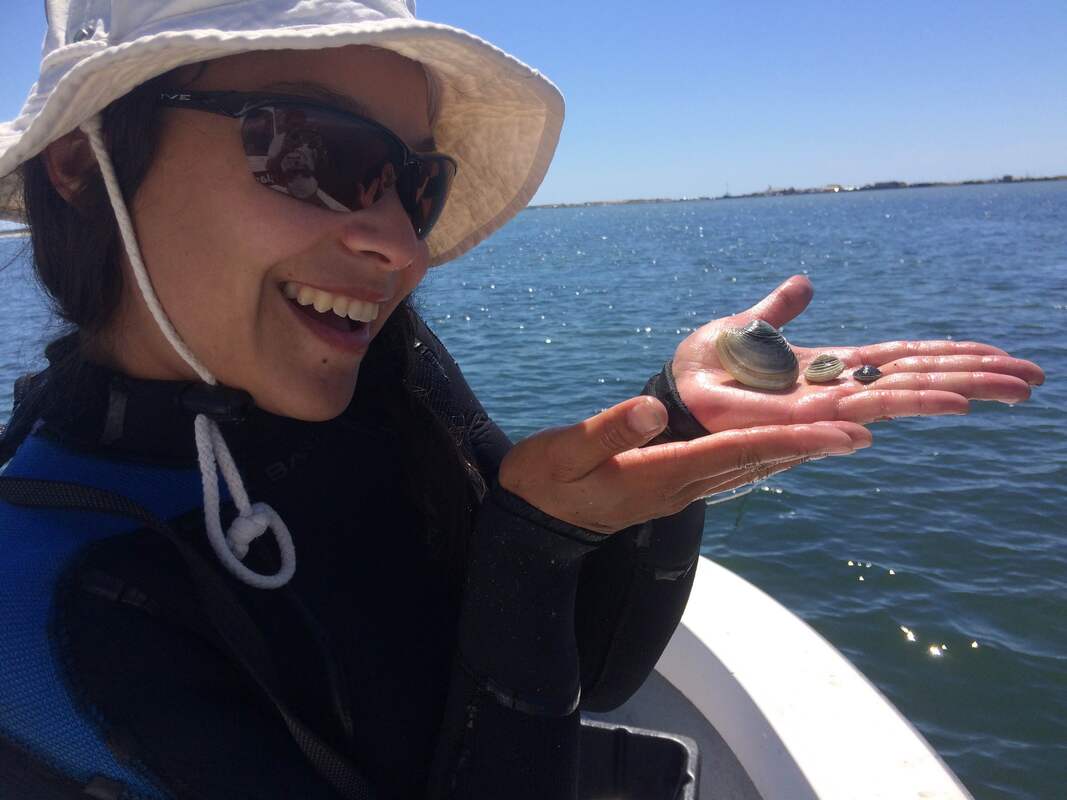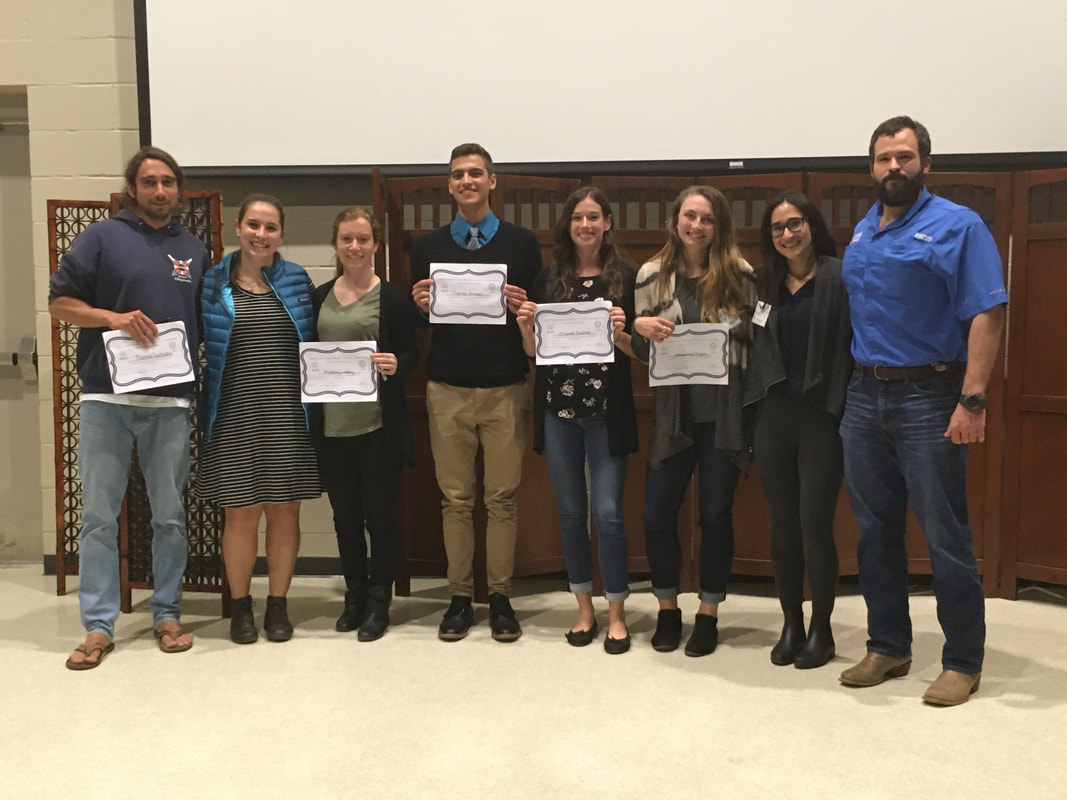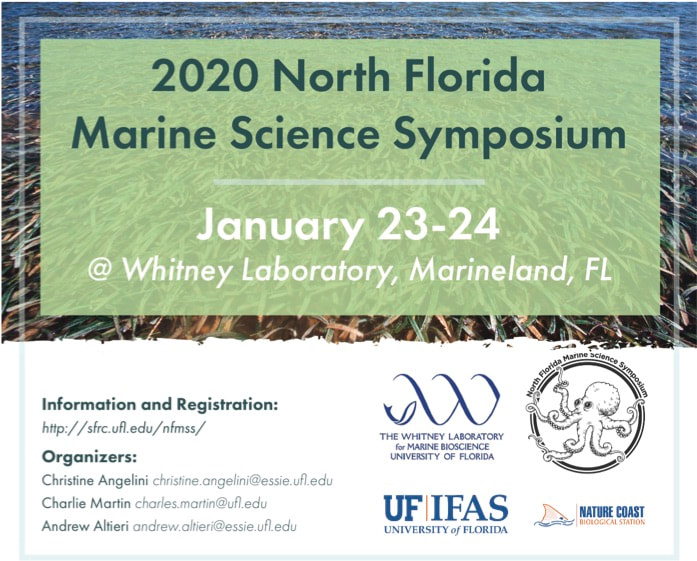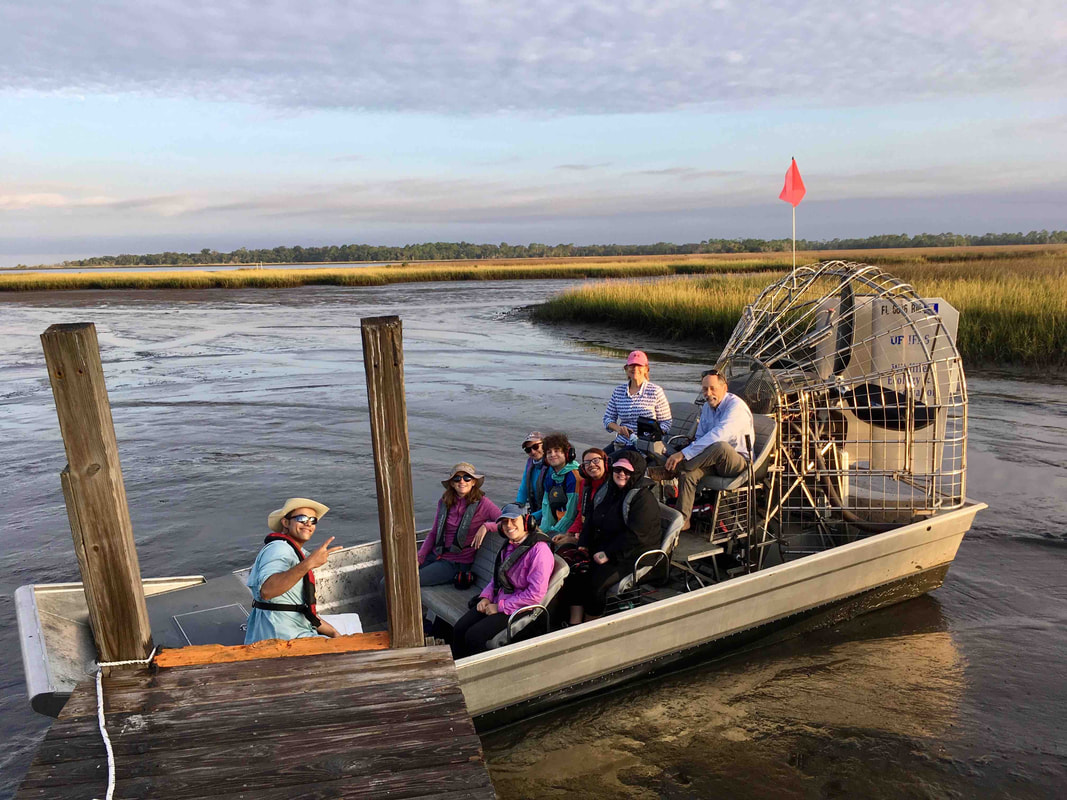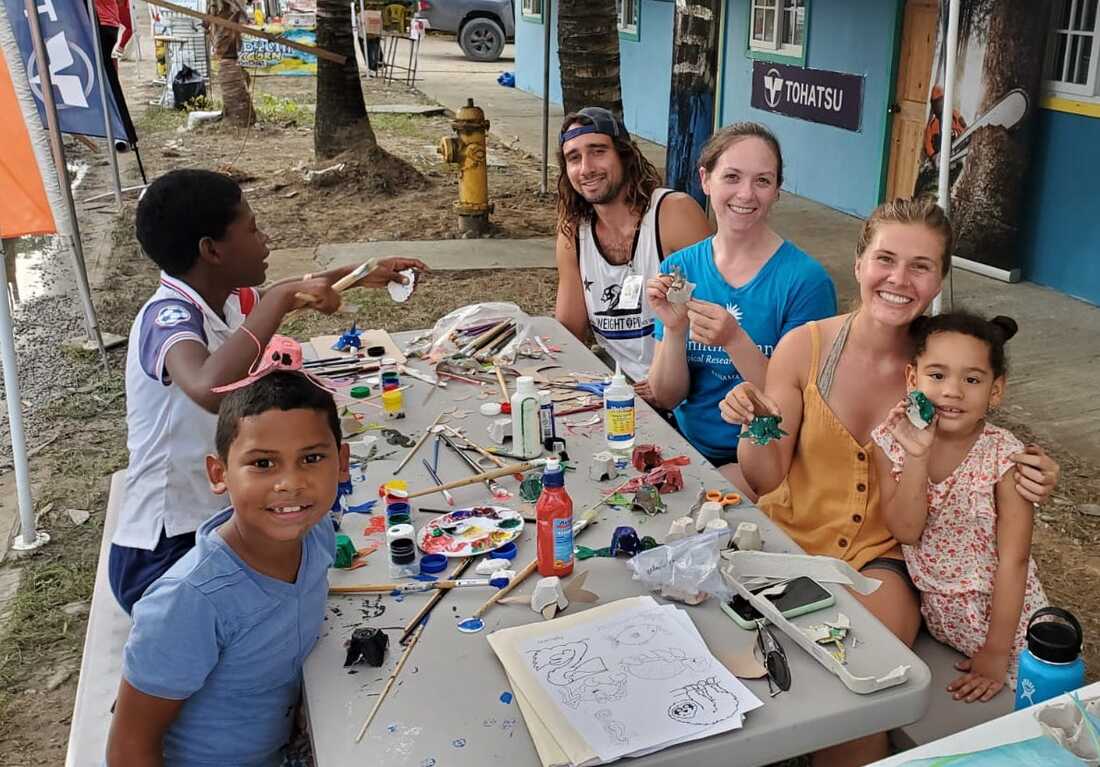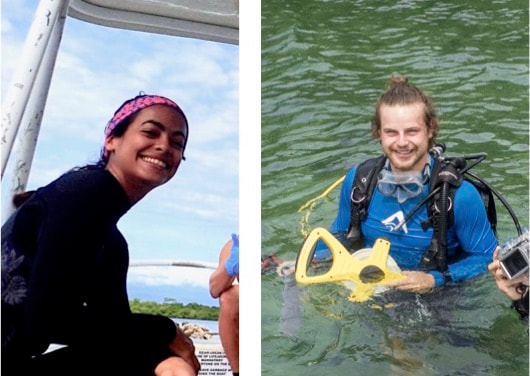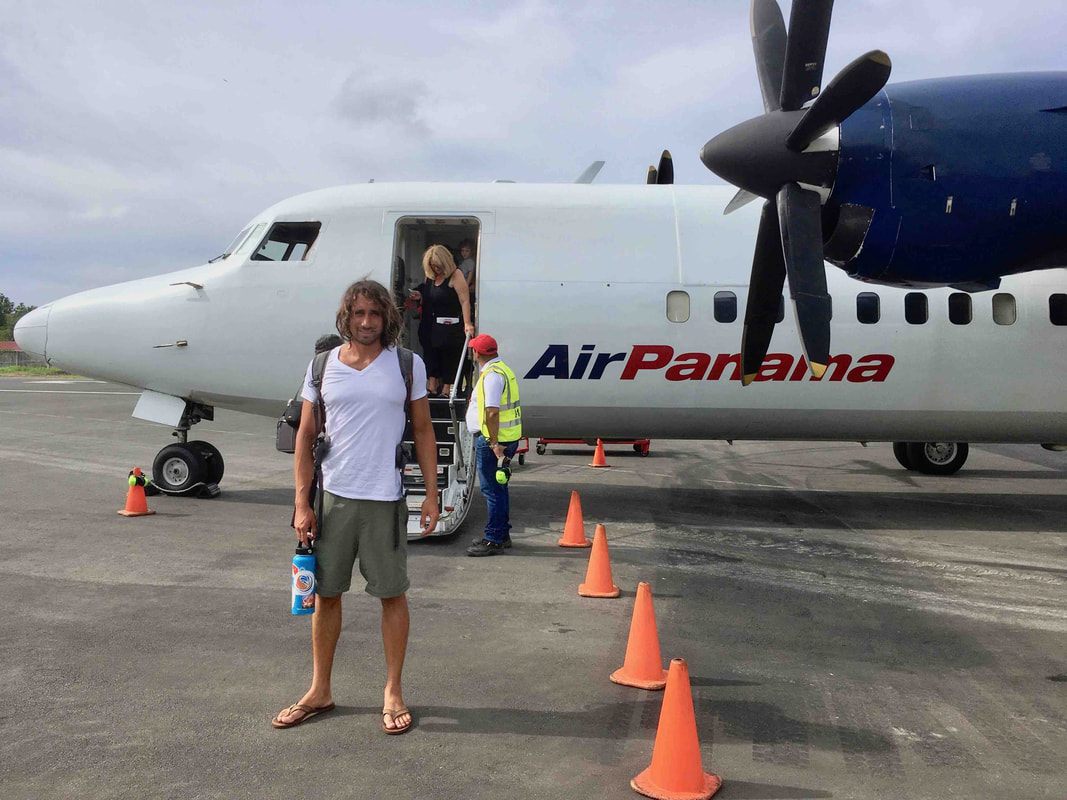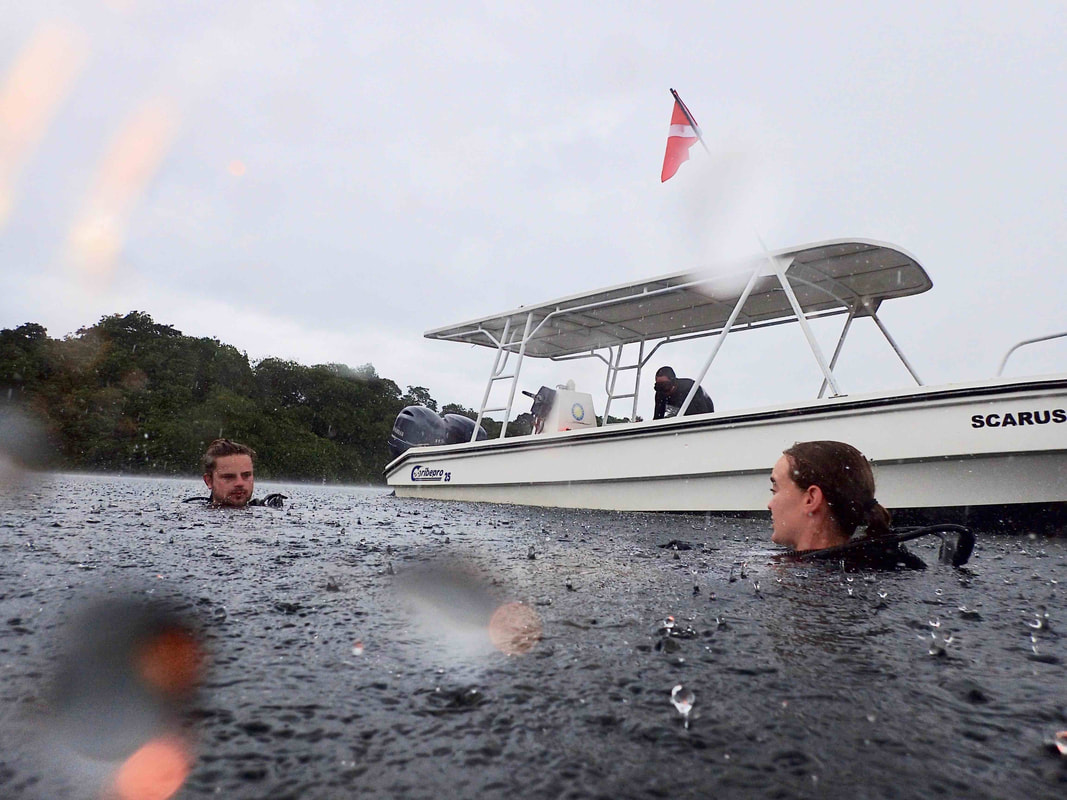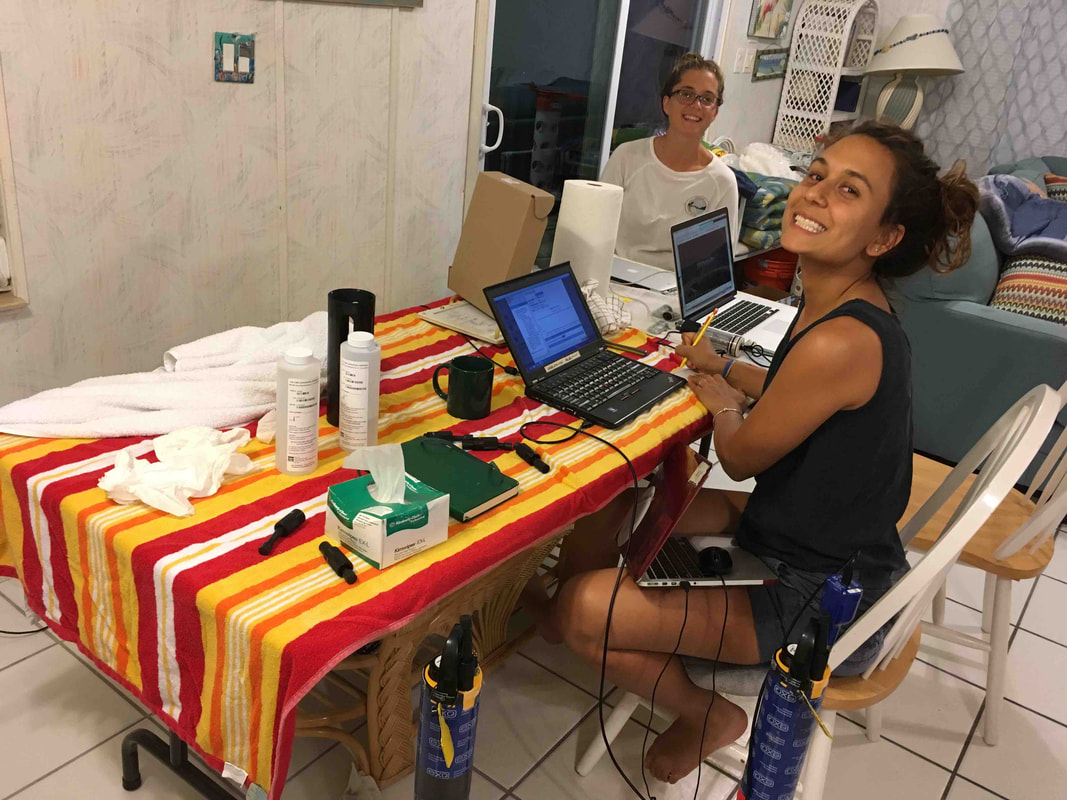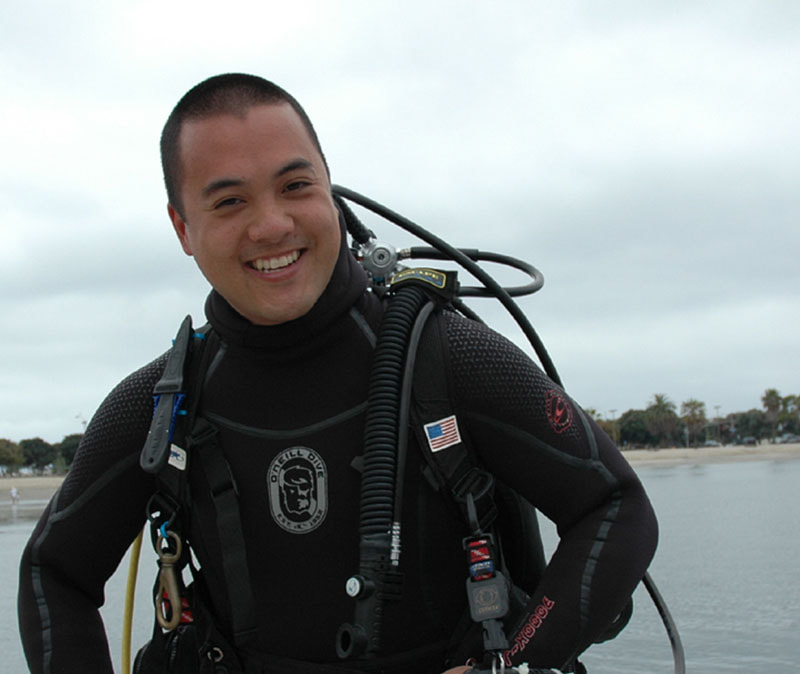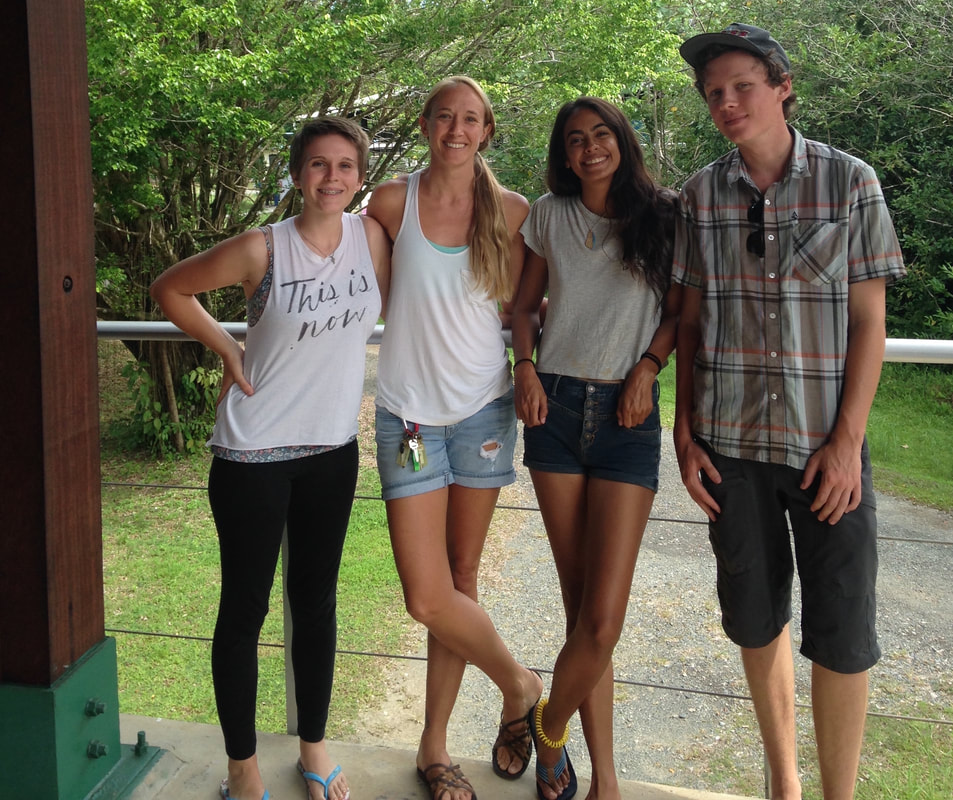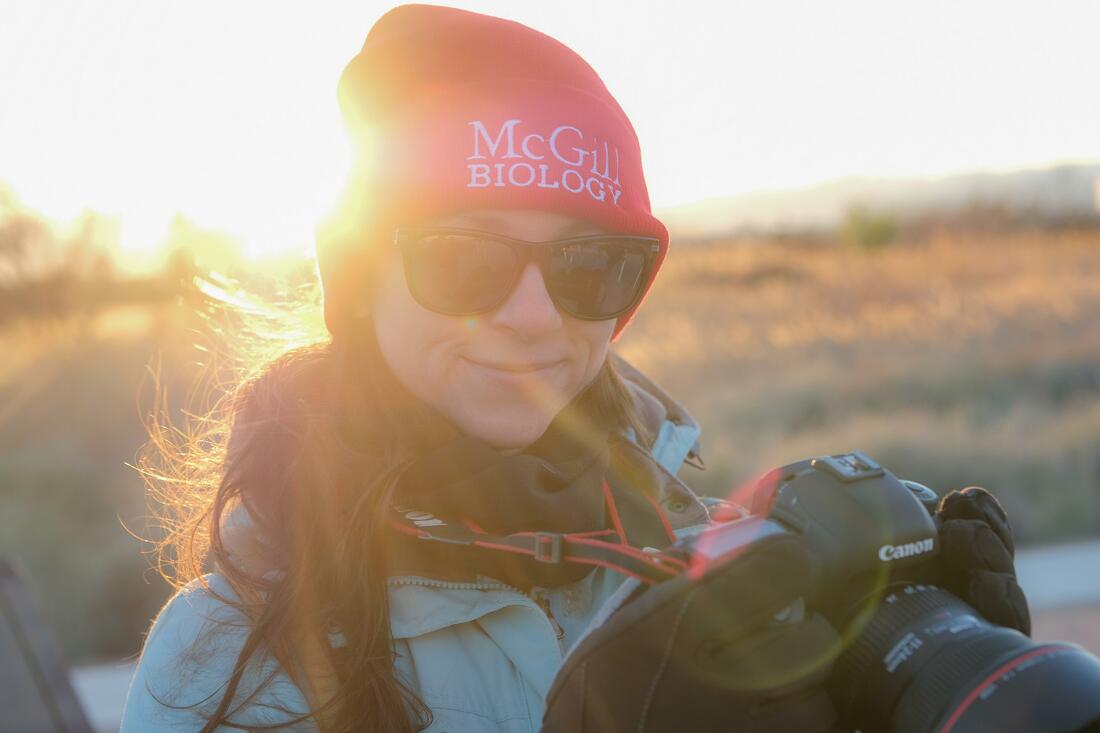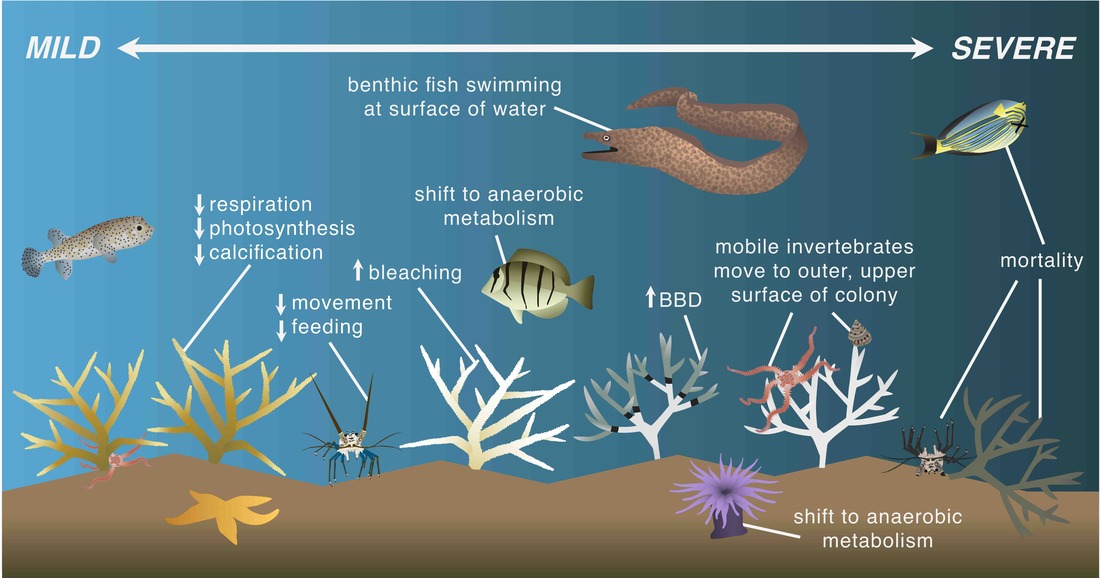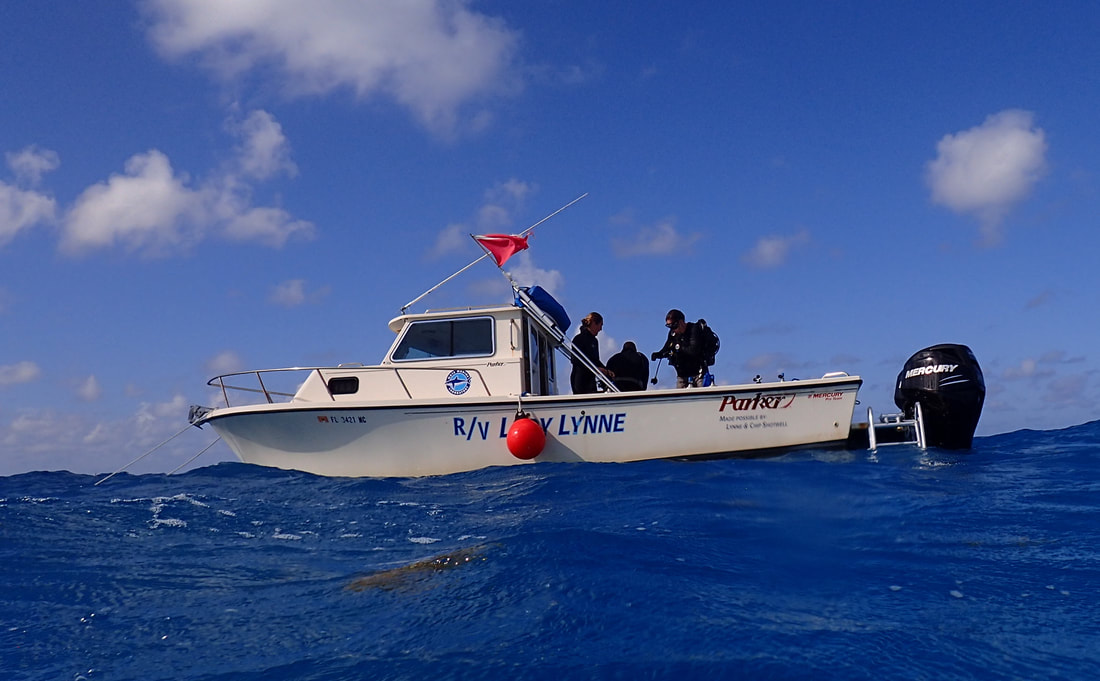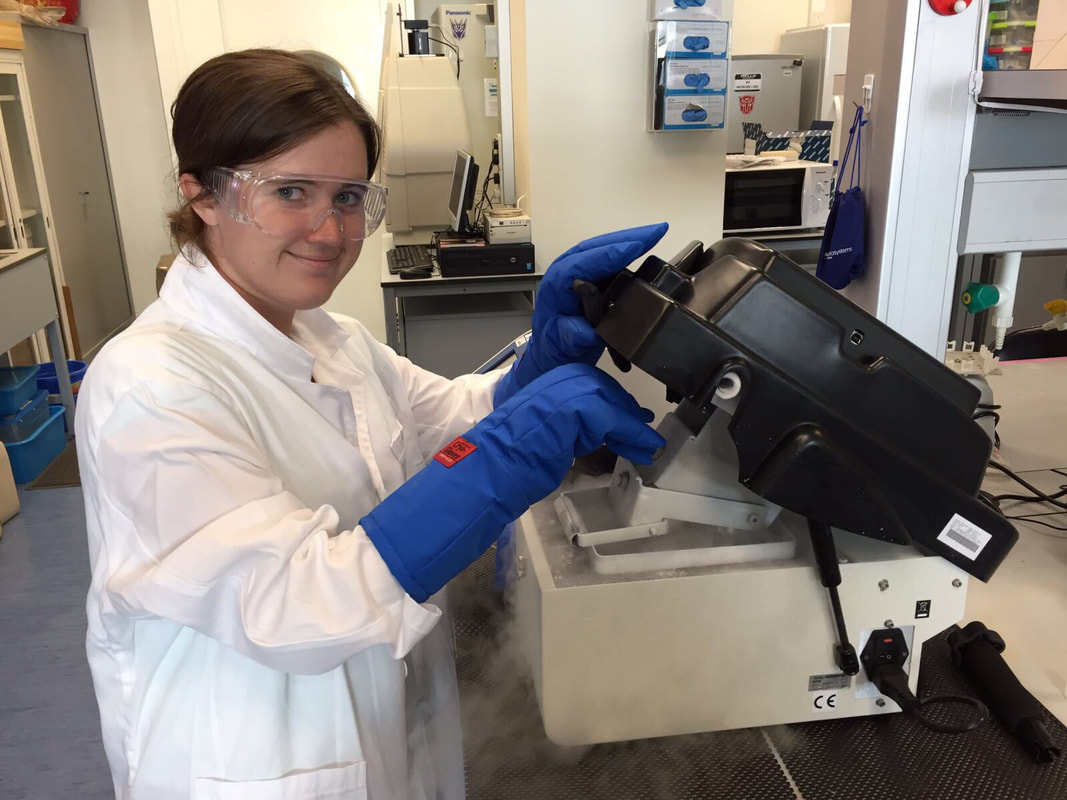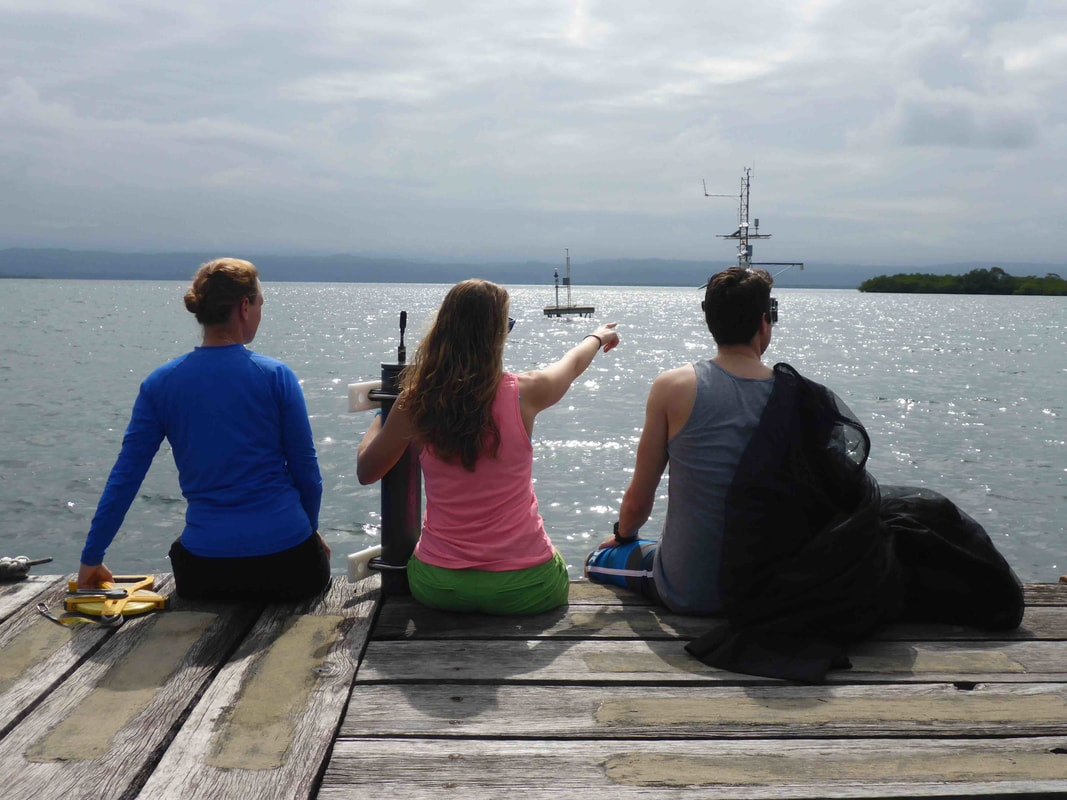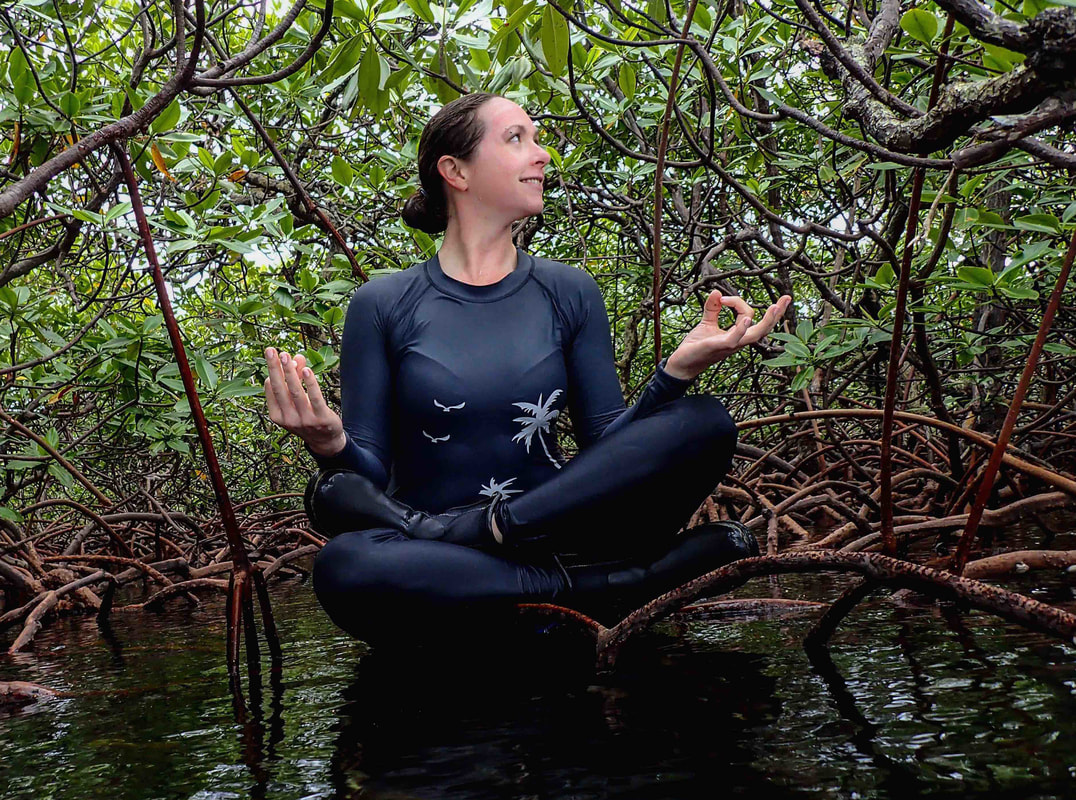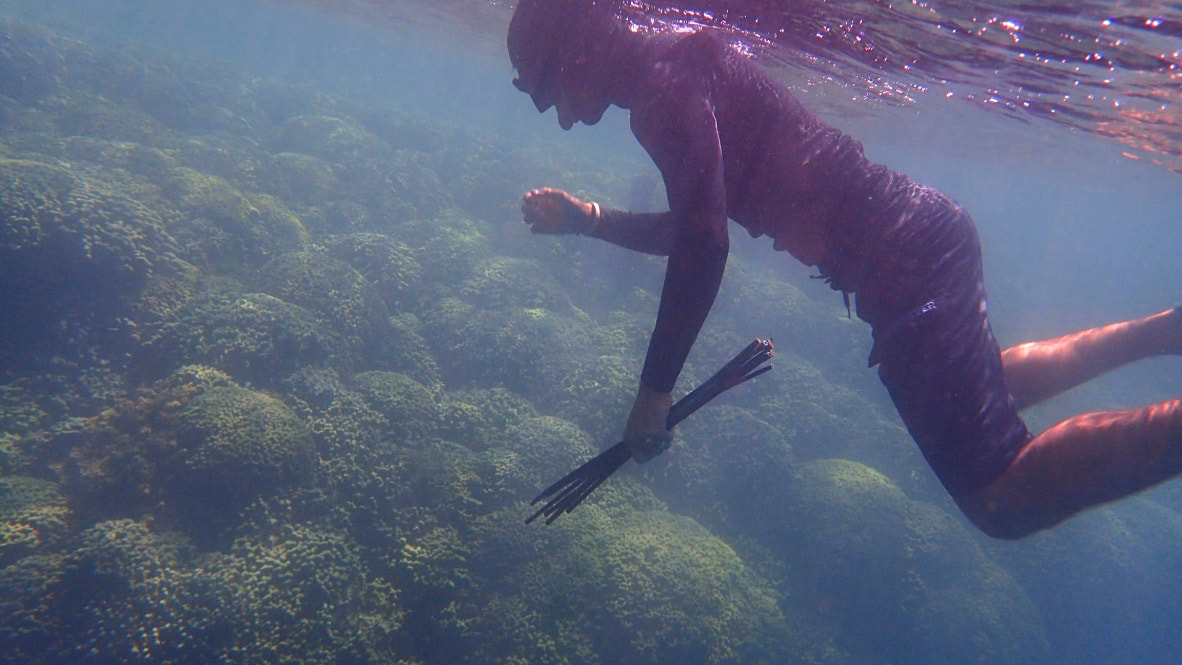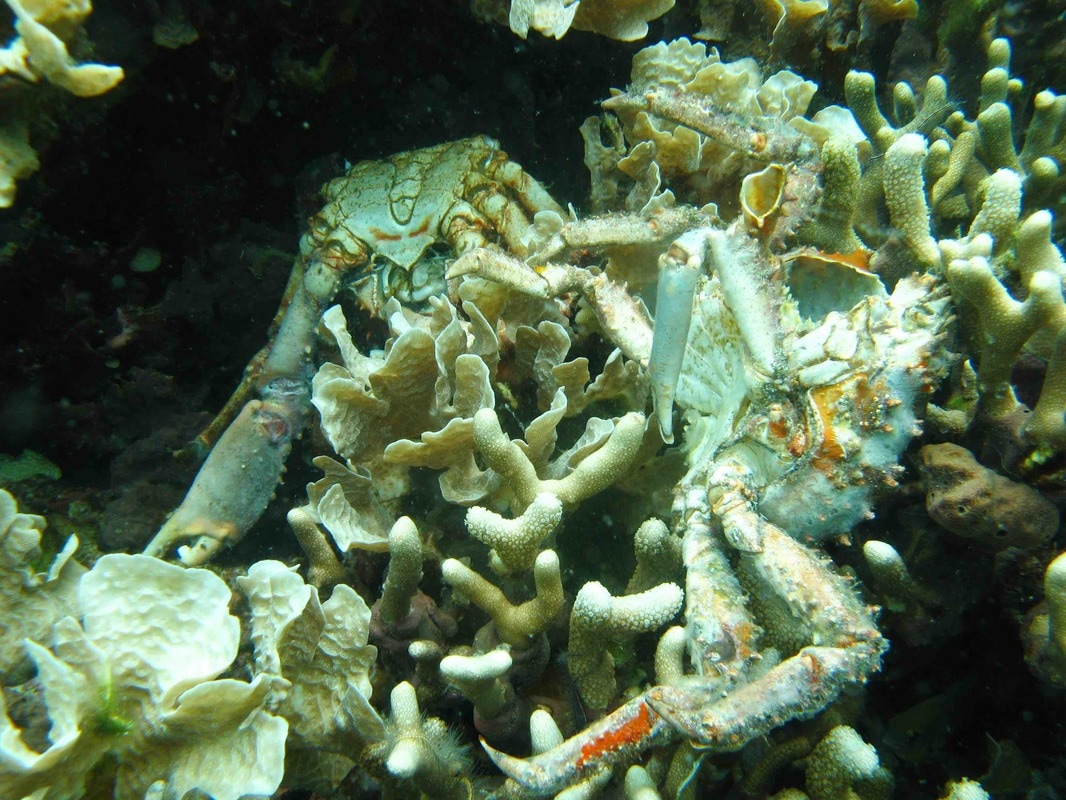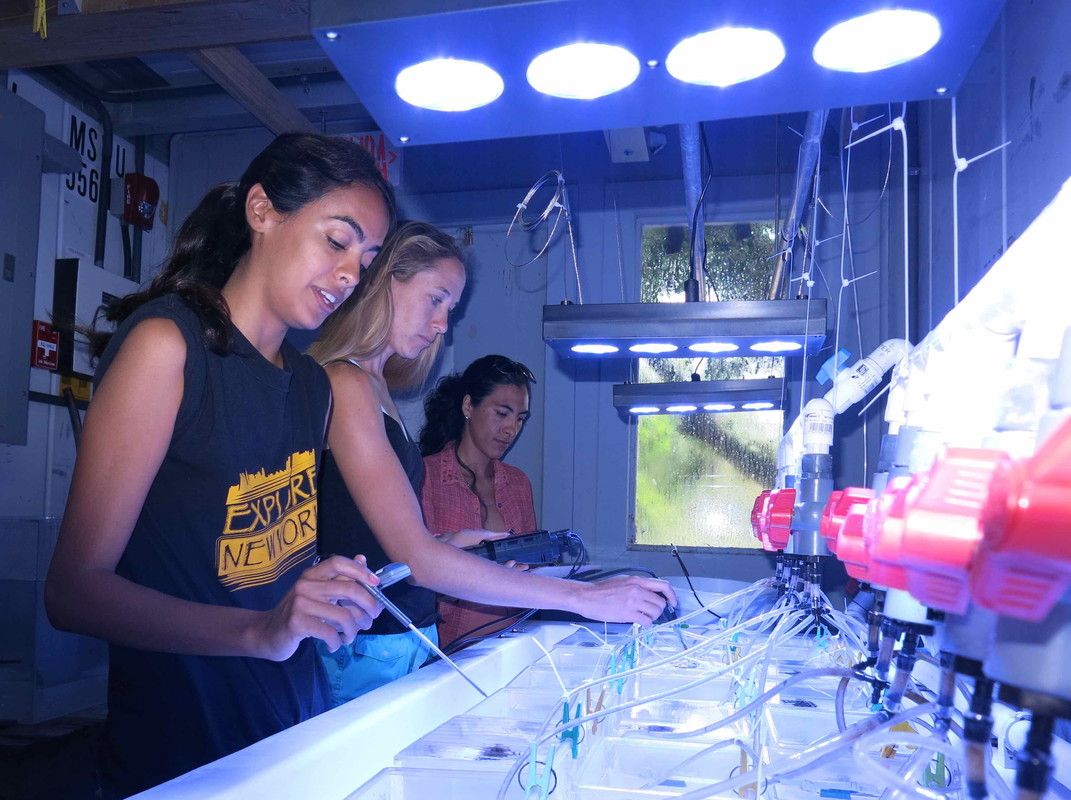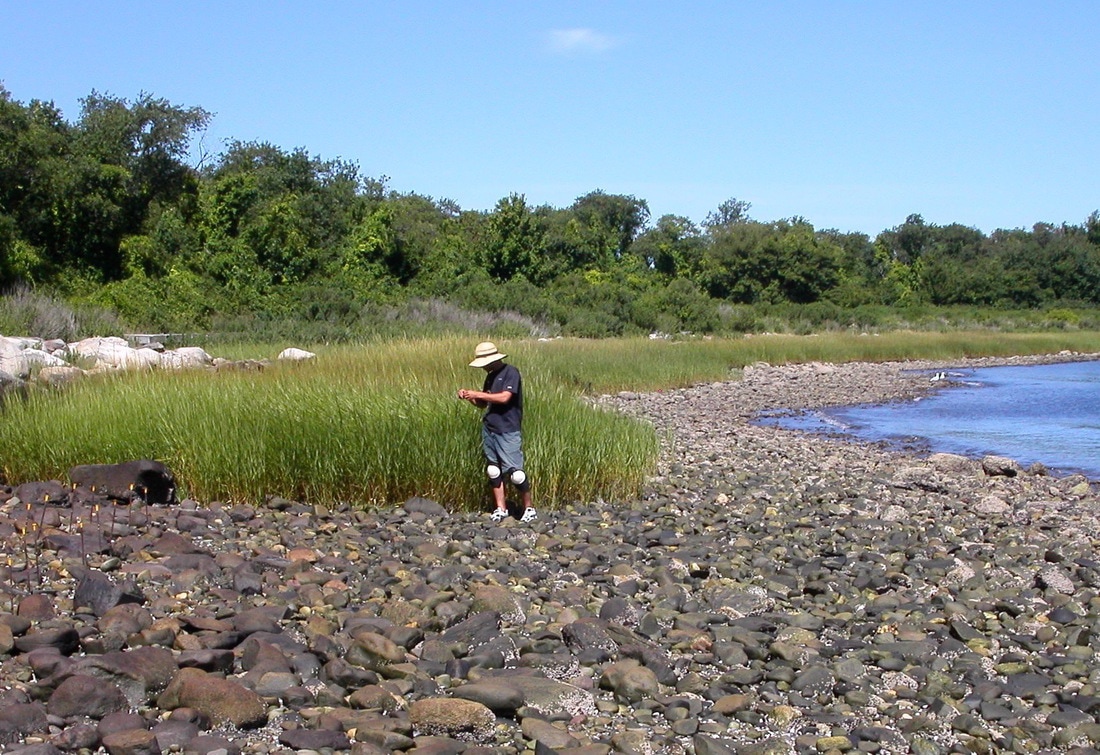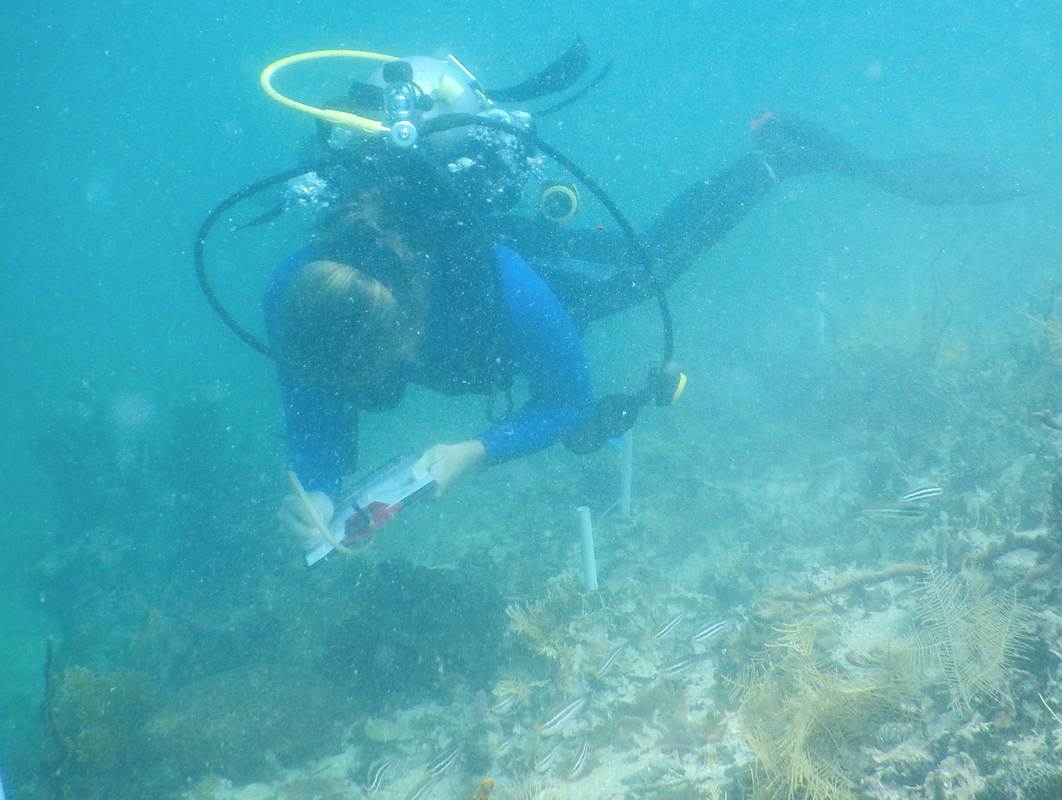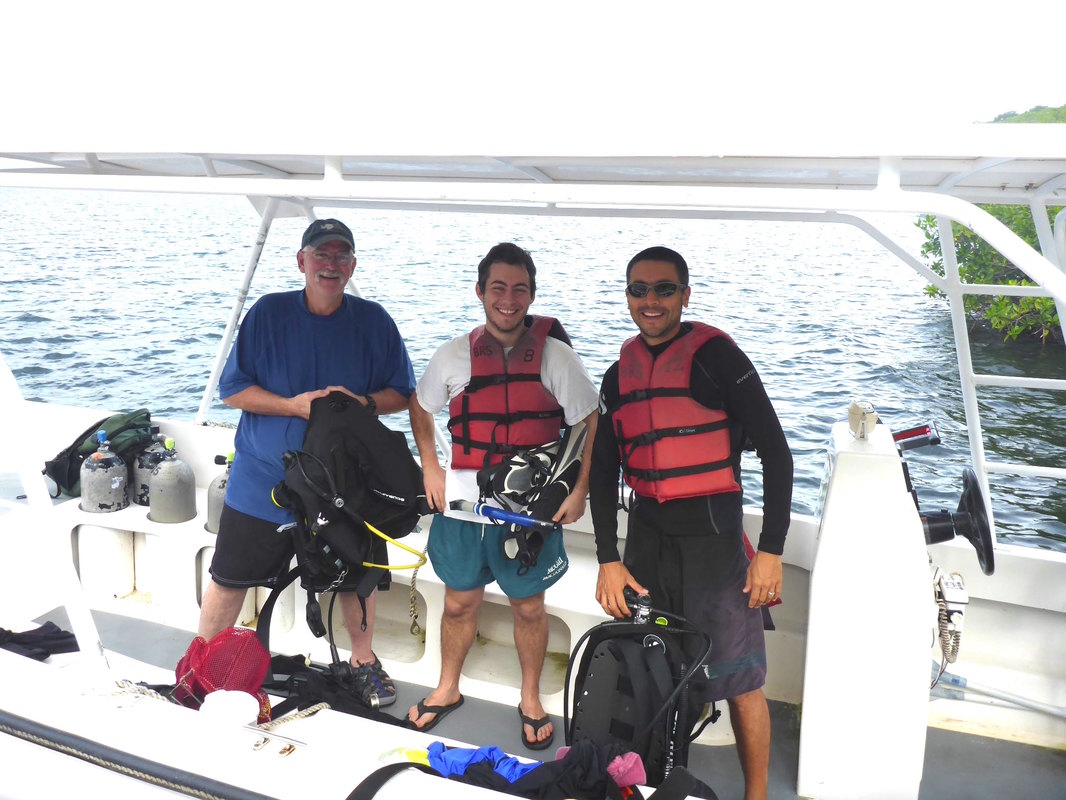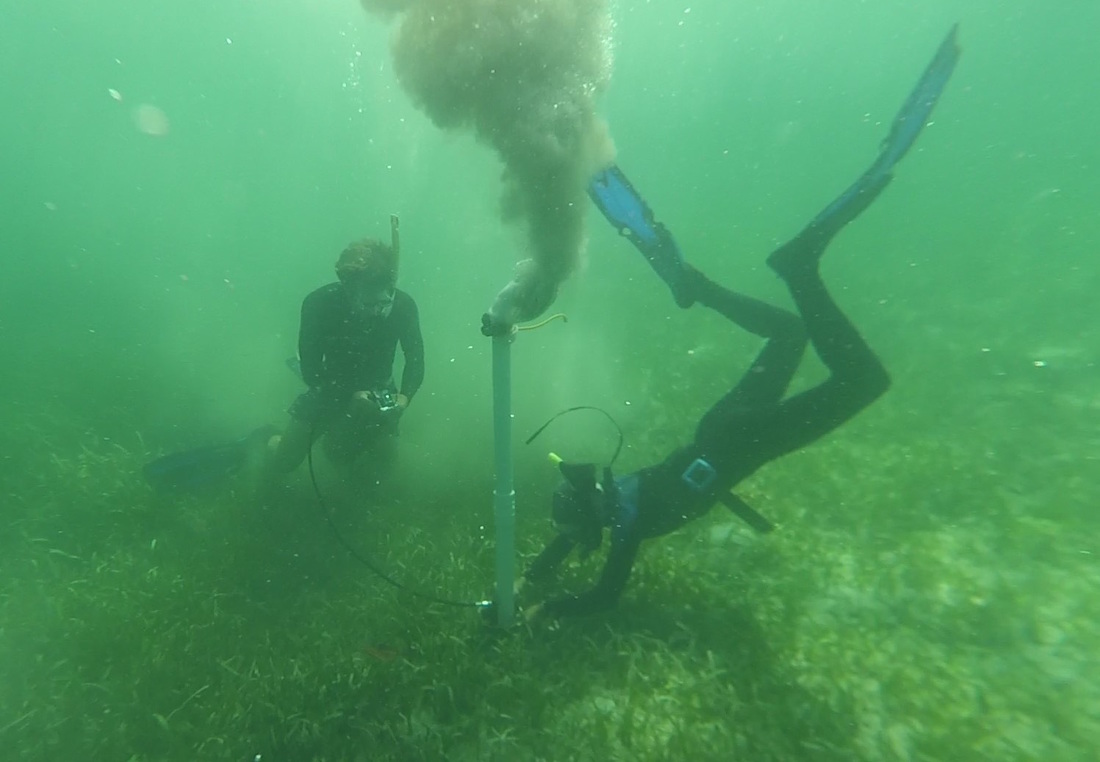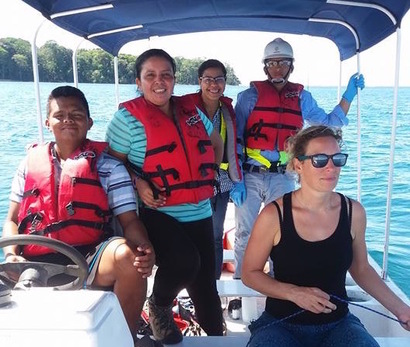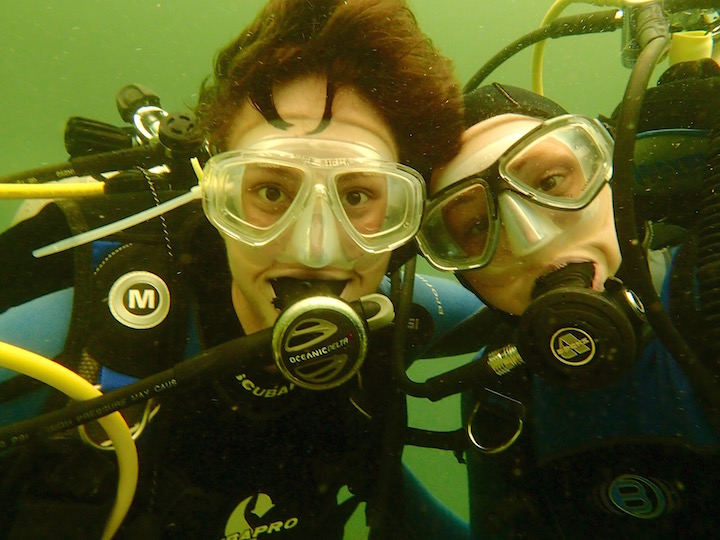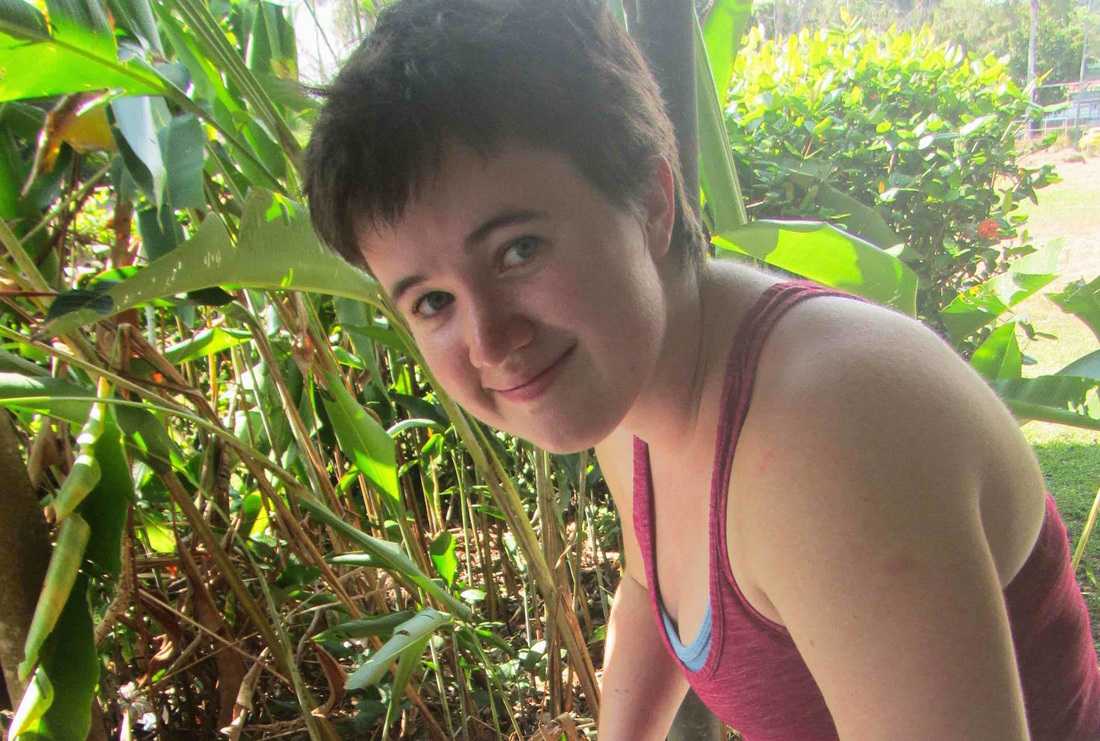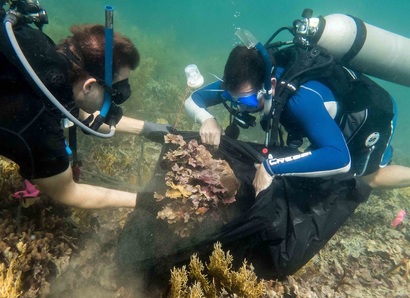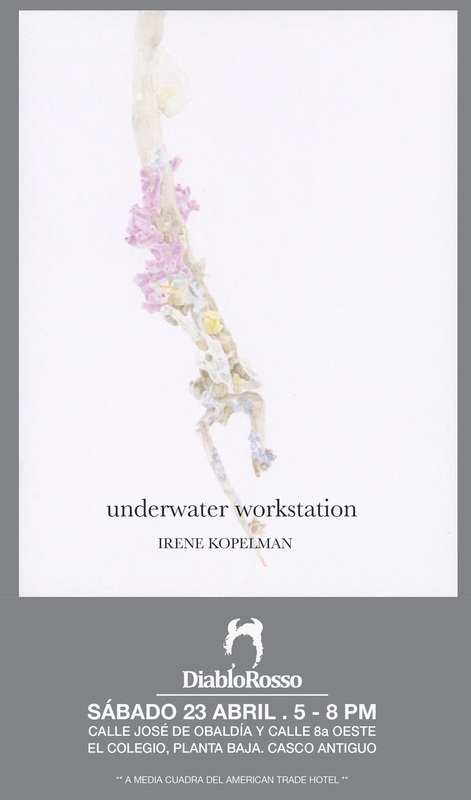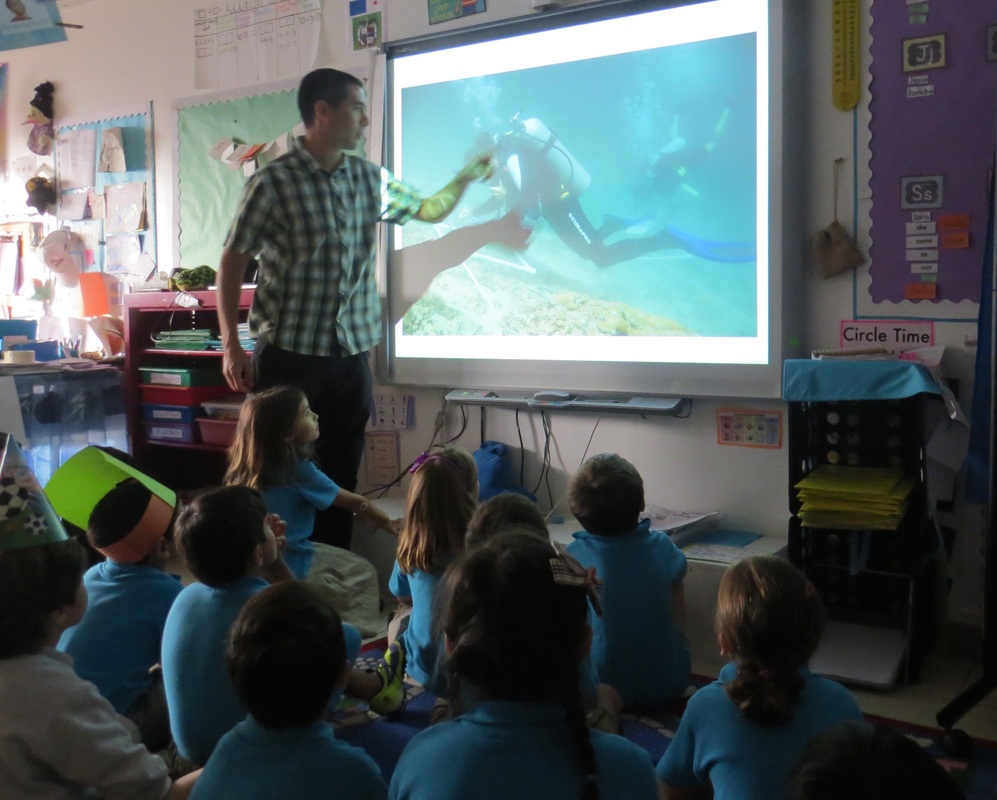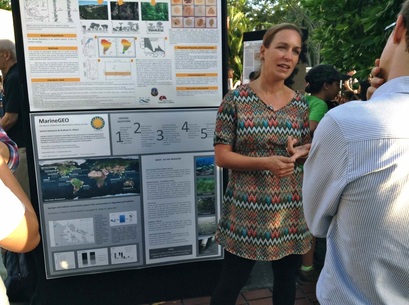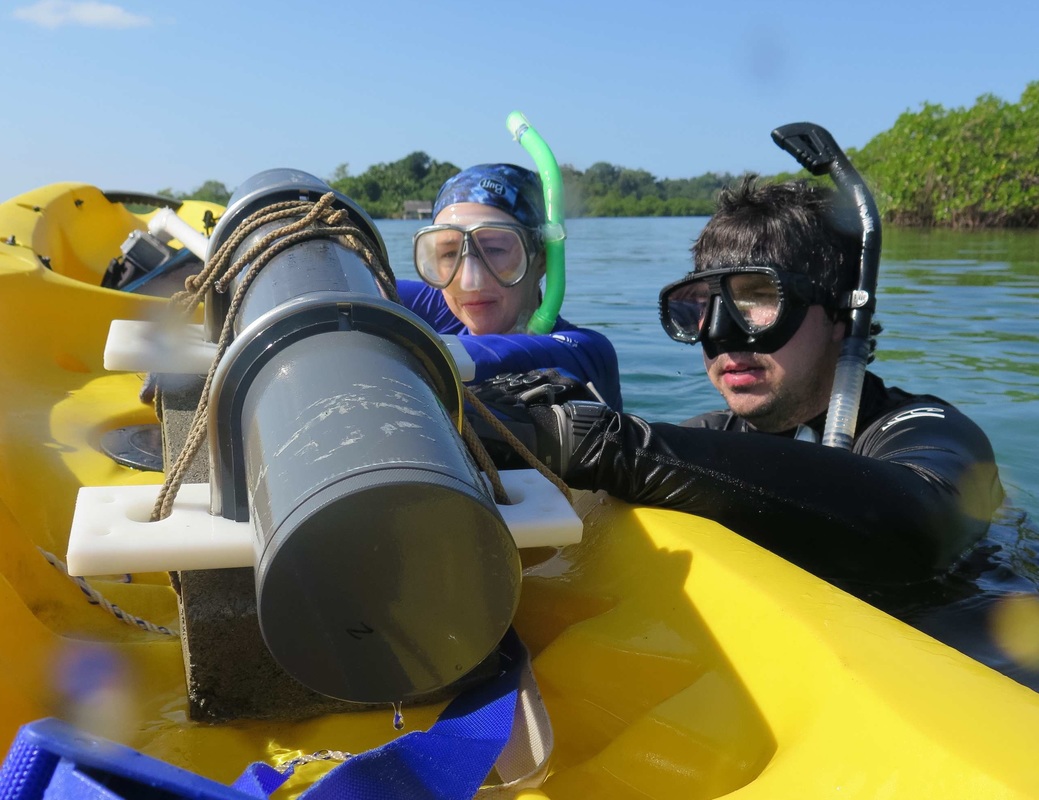Marine ecology and conservation in a changing world
Welcome to Andrew Altieri’s Lab at the University of Florida. Our work examines the ecology of human-dominated coastal ecosystems. The land-sea interface is a rich and productive zone that provides benefits to human well-being. However, it is changing at an accelerating rate due to factors including overfishing, climate change, pollution, and threats to biodiversity and habitat. We pursue field-based research questions wherever natural history and ecological pattern reveal how those globally relevant factors are driving change in marine ecosystems. Our investigations have taken us on adventures in temperate and tropical ecosystems including coral reefs, salt marshes, rocky shores, mangroves, and seagrass beds. This varied approach provides a general understanding of resilience, feedbacks, and thresholds to better predict trajectories of life in the marine realm.
Lab News
|
January 2023
Are you ready for grad school? The Altieri Lab has a PhD student position open for Fall 2023 with an option to get a jump on research during the Summer 2023 field season! The student is expected to develop an independent research interest in the theme of coral traits and ecological succession on reefs. Strong field skills (including scientific diving) and quantitative skills are highly desired, as well as an ability to make a positive contribution to a friendly, collaborative, and diverse research community. Click here for more detailed information – but don’t delay as we are encouraging applications immediately to take advantage of an internal funding opportunity. |
|
December 2022 It’s on! The North Florida Marine Science Symposium is back after a pandemic pause, and is being co-organized by the Altieri Lab! Come join your fellow marine scientists and practitioners to learn more about science, engineering, conservation, and management coastal ecosystems. The Symposium will be held March 2nd & 3rd 2023 at the Whitney Lab in the beautiful setting of St. Augustine, FL. You can click to download the full-size version of the flyer, click for the registration website, or click for the general information website. Save with early bird registration rates through February 2nd, 2023. |
|
October 2022 Boom-boom! PhD student Dakota Lewis landed two competitive grants back-to-back to support her research in Florida Bay and the Florida Keys. One from ForEverglades, and the other from the Forage Fish Research Program. The complementary projects will allow her to examine trophic responses and habitat connectivity of fish in the context of large-scale habitat restoration. As someone who grew up exploring the waters of South Florida, Dakota is using this research support to turn her passion into the pursuit of actionable science! |
|
June 2022 Grandescunt Aucta Labore! Mcgill University’s motto comes to life through Heather Stewart’s degree officially celebrated at this year’s return to in-person convocation. Indeed, “From hardwork, great things grow”, as in the same month Heather published a paper that reviews the global extent of coexisting coral-mangrove habitats and provides a standardized scheme to recognize and describe their importance. Stewart, H.A., J.L. Wright, M. Carrigan, A.H. Altieri, D.I. Kline, R.J. Araújo (2022) Novel co-existing mangrove-coral habitats: Extensive coral communities located deep within mangrove canopies of Panama, a global classification system, and predicted distributions. PLoS One 17: e0269181. |
|
November 2021
Only the strong survive! Some corals have a remarkable ability to tolerate low oxygen conditions. Maggie Johnson led a paper which revealed how some species can survive for weeks in conditions of near total oxygen depletion. These findings explain why some species can persist through hypoxic events in natural systems, and support predictions we recently made about reef resilience to hypoxia. Johnson, M.D., S.D. Swaminathan, E.N. Nixon, V.J. Paul, A.H. Altieri (2021) Differential susceptibility of reef-building corals to deoxygenation reveals remarkable hypoxia tolerance. Scientific Reports 11: 23168. |
|
September 2021 Congrats to incoming PhD student Dakota Lewis who was awarded the prestigious Department of Defense National Defense Science and Engineering Graduate Fellowship. Dakota has a long-standing interest in working with large (and unwieldy) fish datasets. She’ll use her fellowship support to develop AI techniques to distill patterns from the noise, and will add her own field collections of data to fill gaps and test model predictions. |
|
August 2021
Ecological recovery so fast you might get whiplash! Postdoc Maggie Johnson led a paper which shows how quicky the microbial community can recover following a deoxygenation event on a coral reef (see press release). Within a month the microbes at the impacted site resembled the unimpacted site. In contrast, the corals themselves showed sustained impacts from the same event that lasted well over a year. This information on divergent trajectories of recovery has implications for how reefs are monitored and managed in the face of anthropogenic threats. Photo credit: Sean Mattson. Johnson, M.D., J.J. Scott, M. Leray, N. Lucey, L.M.R. Bravo, W.L. Wied, A.H. Altieri (2021) Rapid ecosystem-scale consequences of acute deoxygenation on a Caribbean coral reef. Nature Communications 12: 1-12. |
|
June 2021
Congratulations to Heather Stewart who successfully defended her dissertation and is a newly minted PhD! The ESA Bulletin published a nice profile of her work which was also touted in a press release. Dr. Stewart will start a postdoc at the University of the Virgin Islands restoring mangroves with a heavy dose of community outreach. We look forward seeing the positive impact as she applies her newfound knowledge. Photo credit: Jorge Alemán Stewart, H.A., D.I. Kline, L.J. Chapman, A.H. Altieri (2021) Coral forests. Bulletin of the Ecological Society of America 102: 1-5. |
|
May 2021
Some like it hot, some like it cold! PhD student Nicole Knight challenged the Temperature Constraint Hypothesis (TCH) which has long been cited as an explanation for the widely recognized pattern of lower diversity and abundance of herbivorous fishes at high latitudes. Contrary to the TCH, her meta-analysis found that aspects of digestion in herbivorous fish actually respond similarly to carnivorous fishes as temperature decreases, and highlights some of the trophic tricks that herbivorous fish use to remain successful in cooler climates. Next she’ll turn her sleuthing skills towards other explanations of global fish diversity patterns, and use trophic ecology to better understand environmental constraints on community structure. Knight, N.S., F. Guichard, A.H. Altieri (2021) A global meta-analysis of temperature effects on marine fishes’ digestion across trophic groups. Global Ecology and Biogeography 30: 795-810. |
|
April 2021
Made in the shade! PhD student Heather Stewart published a paper that highlights the diverse coral communities that can live among mangroves. Through a set of transplant experiments, she further revealed that many coral species fared better in the shady mangrove habitats than on nearby shallow reefs. She concluded that the mangroves offer corals shelter from the warm, bright reefs, and that this refuge function is likely to become increasingly important with climate change. Stewart, H.A., D.I. Kline, L.J. Chapman, A.H. Altieri (2021) Caribbean mangrove forests act as coral refugia by reducing light stress and increasing coral richness. Ecosphere 12: e03413. |
|
March 2021
A new hope! The Altieri Lab published a new paper in Trends in Ecology and Evolution which offers an optimistic view on tropical ecosystems confronting ocean deoxygenation. While prior work from the lab, summarized in a recent IUCN report, has served as a wake-up call by revealing that oxygen depletion can have detrimental impacts on tropical ecosystems, this new study emphasizes that coral reefs, seagrass meadows, and mangroves possess a number of mechanisms that provide resilience to commonly encountered low-oxygen conditions. Altieri, A.H., M.D. Johnson, S.D. Swaminathan, H.R. Nelson, K.B. Gedan (2021) Resilience of tropical ecosystems to ocean deoxygenation. Trends in Ecology and Evolution 36: 227-238. |
|
October 2020 Sara Swaminathan will spend some of her time virtually in the field thanks to support that she recently secured from the UF Tropical Conservation Development Grant and a departmental Glick Award. She’ll be returning to an earlier interest in geospatial analysis to examine how coral reef geomorphology sets the stage for ecological processes. Computer-based work now will set the stage for field work once pandemic restrictions lift. Congrats to Sara on finding support to launch this exciting new project! |
|
Sept 2020 With a heart of gold, Heather Stewart was motivated by the tragedy of the Covid-19 pandemic to extend a helping hand. Members of our lab group, and anyone else who has spent time in STRI’s Bocas Research Station and surrounding community, were saddened to learn of the loss of José Villalobos to the virus. As one of the security guards, José was often the first or last person we saw during our workday at the station, and he shared the gift of his smile and good cheer with everyone. Heather and fellow student Betzi Peréz organized a fund raiser that delivered food and sanitation items to the family of José and two dozen other families in the Bocas area. |
|
August 2020 Patrick Saldaña continues to lay the groundwork for his return to the field post-pandemic. He received a UF Biodiversity Institute Graduate Student Fellowship, as well as the departmental Melnick Award. The funds will support his time at field sites in Caribbean Panama while also fostering collaborations to add modeling approaches to his work. Congratulations to Patrick, with hopes that he can get back to his reef sites before his gills dry out! |
|
June 2020 Hannah Nelson continues to prove she is a force of nature (and for nature)! She was recognized with the best paper of the year award from the journal Coral Reefs. While on a sabbatical between her master’s and PhD programs, she returned to our lab to lead the paper that examines the integral role of oxygen dynamics on coral reef pattern and process, from coral calcification rates and bleaching dynamics to fish behavior and mass mortality. Congratulations to Hannah! |
|
April 2020 Congrats to incoming postdoc Diana Chin on her NSF Postdoctoral Research Fellowship award. Diana will expand her work examining the mutualisms between bivalves and seagrass when she arrives at UF later this year. She’ll add large-scale environmental gradients and small-scale microbial functions in her quest to better understand the resilience of coastal ecosystems. Having previously conducted work in the Caribbean, Europe, and marine systems in between, Florida will prove a fruitful hub for her activities over the next couple of years. |
|
January 2020 Patrick Saldaña showed you really can have it all, with his strong showing at the North Florida Marine Science Symposium. First, he took the prize with the best student speaker award for his presentation on trophic interactions and the resilience of Caribbean coral reefs (that's Patrick in the flip flops). Then he led the lab and keynote speaker, and fellow Californian, Kevin Lafferty to the nearby beach for a surf session. |
|
November 2019 Come one, come all to the biennial North Florida Marine Science Symposium! Scientists, managers, conservation practitioners, and the general public are all encouraged to join in the fun, with an emphasis on student research and networking. The Altieri lab is co-organizing this year’s meeting along with the research groups of Christine Angelini and Charlie Martin. See the flyer for more information, or head straight to the NFMSS website to register. Early registration ends on December 15th! |
|
October 2019 You know you’re on the Gulf Coast of Florida when your ride is an airboat limousine! Andrew Altieri took his Ecosystem Engineer’s class out to see the Lone Cabbage oyster restoration project in action. Project lead Peter Frederick piloted the class out to the chain of reefs that were created on the footprint of the historic oyster populations. The class saw first-hand how bountiful oyster populations have established within a couple of years, and watched as the tides shifted and inshore waters were impounded to enhance conditions for future oyster and blue crab populations. |
|
September 2019
Taking science into the streets! Heather Stewart, Patrick Saldaña, and Natalie Goetz celebrated Bocas del Toro’s Feria del Mar (Sea Fair) with an outreach event including craft projects to teach families about the oceans. The annual Feria del Mar, with games, food, and music, attracts thousands of people from Panama and neighboring Costa Rica, as well the international visitors that pass through the islands. Heather, Patrick, and Natalie shed their wetsuits and partnered with the Smithsonian Tropical Research Institute to send kids home with their own tortugas, pulpos, and perezosos, and a new appreciation for the sea. |
|
August 2019
3-2-1 Blastoff! Two post-baccalaureate researchers from the lab have launched into PhD programs. Lucia Rodriguez joined Rodrigo Baes’ lab at Universidad Autónoma de Baja California. Will Wied joined Justin Campbell’s lab at Florida International University. Both Will and Lucia spent several years based in our Panama program where they led, and collaborated on, several projects. Their dissertation research will build on interests developed while in our lab, and we look forward to seeing where their adventures take them. |
|
July 2019 Patrick Saldaña has migrated south to the tropics. After cutting his teeth in the cool waters of California during his master’s, Patrick has initiated his dissertation research in the balmy Caribbean. He kicked off his first field season with an extended trip to our field site in Panama. Patrick will build on his interest in interactions among foundation species by working Bocas del Toro where healthy stands of mangroves, seagrass, and corals are found in close proximity to one another. |
|
June 2019
Liquid sunshine! A little rain didn’t stop the fun during the closing field campaign for the Thalassia Experimental Network (TEN). Will Wied and postdoc Oliva Rhoades are pictured before diving to collect data, pictures, and samples in Bocas del Toro. The project which spans from Panama to Bermuda is examining the relative importance of top-down and bottom-up forcing on seagrass communities along a latitudinal gradient. As sample processing and mop-up field work continues, collaborators from across the network will rally for a workshop at the Coastal and Estuarine Research Federation (CERF) meeting in Fall 2019. See you in 'Bama! |
|
May 2019 Congrats to incoming PhD student Sara Swaminathan who landed an NSF Graduate Research Fellowship! Sara arrives in the lab after a research position at U of Miami’s RSMAS where she developed expertise coral physiology, spatial ecology, and environmental monitoring. She’ll apply her background by examining the response of corals to global change stressors with an eye towards improving the success of coral restoration efforts. |
|
April 2019 It’s a one-two punch! Postdoc Brian Cheng (now faculty at UMass Amherst) had two papers back-to-back that examine ecological processes at a global scale. The first paper, in Diversity and Distributions, experimentally found that biotic invasion-resistance through predation was strong across latitudes from tropical Caribbean to temperate New England. The second paper, in Ecology, was a meta-analysis that revealed Marine Protected Areas (MPAs) consistently restore ecological function in the form of top-down control (read more in the press release). Cheng, B.S., G.M. Ruiz, A.H. Altieri, M.E. Torchin (2019) The biogeography of invasion in tropical and temperate seagrass beds: Testing interactive effects of predation and propagule pressure. Diversity and Distributions 25: 285-297. Cheng, B.S., A.H. Altieri, M.E. Torchin, and G.M. Ruiz (2019) Can marine reserves restore lost ecosystem functioning? A global synthesis. Ecology 100: e02617. |
|
March 2019
The roller coaster of daily cycling in pH might as well be the freight train of ocean acidification. A recent paper in Frontiers in Marine Science led by postdoc Maggie Johnson with several student co-authors including Lucia Rodriguez, Shevonne O’Connor, and Nik Varley found that periodic exposure to low pH conditions is just as detrimental to coralline algae as sustained immersion in low pH waters. Our study further suggests that exposure to naturally cycling pH will sensitize marine organisms to long-term trends associated with ocean acidification rather than building tolerance. Johnson, M. D., L. M. Rodriguez Bravo, S. E. O'Connor, N. F. Varley, and A. H. Altieri (2019) pH variability exacerbates effects of ocean acidification on a Caribbean crustose coralline alga. Frontiers in Marine Science 6: 150. |
|
February 2019 We’ve got a shutterbug in the lab! Grad student Heather Stewart was selected for the NANPA Summit College Photography Scholarship Program. She flew to Las Vegas(!) to workshop with mentors from National Geographic. In addition to curating her portfolio and getting advice on improving her underwater photography, she imbedded with a team to conceive, produce, and premier a short film on the Clark County Wetlands park you can see here. |
|
January 2019 Cha-ching! Oxygen is the universal currency on coral reefs, and the reef community is divided into the “haves” and “have nots”, and the “givers” and “the takers”. That is the message of a new review paper led by Hannah Nelson. Dissolved oxygen is highly variable in reef environments, and can limit processes including calcification and photosynthesis, and can mediate relationships between corals and algae and disease. Nelson, H.R., A.H. Altieri (2019) Oxygen: The universal currency on coral reefs. Coral Reefs: available online early. |
|
December 2018 We’re looking for someone with the right stuff! We have a PhD student position available in our lab to examine the response of corals to environmental stressors. The student will join an interdisciplinary team that will focus on the impacts of hypoxic stress (low oxygen) on coral health. We’re looking for someone with the right skills and an ability to start in late spring/early summer 2019. Please click here for details about the opportunity and application. |
|
January 2018 Gator Chomp! The Altieri Lab has moved to the University of Florida. We had a good run while our home base was at the Smithsonian Tropical Research Institute. We’re excited to grow into the new possibilities on the horizon while maintaining our friends, collaborations, and research activities in Panama. Stay tuned for new developments. . . |
|
August 2017 All work and no play. . .makes isotope data flow all day! PhD student Nicole Knight traveled to the University of Hong Kong to expand her collaboration to include isotope analyses. She is working around the clock during her visit to extract isotope data to examine trophic patterns in the context of a high-resolution biodiversity assessment on coral reefs. |
|
July 2017
Adding dimensions to diversity. MarineGEO postdoc Erica Staaterman led a team to test whether bioacoustics monitoring might replace traditional methods of biodiversity assessment such as visual surveys. Examining multiple habitats including coral reefs, mangroves thickets, and seagrass beds, she revealed in a new paper that bioacoustics complimented other methods by revealing cryptic species. Staaterman, E., M.B. Ogburn, A.H. Altieri, S.J. Brandl, R. Whippo, J. Seemann, M. Goodison, and J.E. Duffy (2017) Bioacoustic measurements complement visual biodiversity surveys: preliminary evidence from four shallow marine habitats. Marine Ecology Progress Series 575: 207-215. |
|
June 2017 Zen and the art of mangrove maintenance. PhD student Heather Stewart is off and running in her first field season. She is studying mechanisms that maintain patterns of biodiversity in mangrove root communities. After setting up experiments on the Caribbean coast of Panama, she will expand to include comparative studies across the region. |
|
May 2017 Hawaii Bioblitz is ‘popping’! The MarineGEO team converged on Kaneohe Bay for a collaborative biodiversity assessment. While most participants focused on cataloguing taxonomic diversity, Andrew Altieri and a splinter group used ‘squid pops’ and ‘weed pops’ to examine relationships between trophic processes and species richness. |
|
April 2017
Dead zones threaten coral reefs. Our recent paper reveals how low oxygen triggered a mass mortality event on coral reefs along the Caribbean coast of Panama. And analysis of several global databases suggests that dozens of reefs have been similarly hit, and hundreds more are threatened. Increased research capacity in the tropics, and local management of pollution, could help turn the tide on this newly recognized anthropogenic threat to coral reefs. Altieri, A.H., S.B. Harrison, J. Seemann, R. Collin, R.J. Diaz, and N. Knowlton (2017) Tropical dead zones and mass mortalities on coral reefs. PNAS 114: 3660-3665. |
|
March 2017
Lights, camera, action! Postdoc Maggie Johnson (pictured between interns Lucia Rodriguez and Nicte-Ha Muñoz) re-engineered the ocean acidification lab at the Bocas del Toro Research Station to include new lights, pumps, plumbing, and pH stat system. She’ll run a series of experiments to examine how ocean acidification is affecting Caribbean coral reefs as part of her fellowship that is jointly sponsored by STRI and MarineGEO. This research will expand on Maggie’s earlier work on Pacific coral reefs where she examined the relative success of calcifying and non-calcifying reef species. Maggie will also include field sites in Belize and a stint at the Smithsonian Marine Station in Ft. Pierce, FL. |
|
February 2017
Facilitation cascades reach beyond borders. A new paper by Andrew Altieri and Andrew Irving describes how invasive Asian shore crabs recruit to cordgrass beds on New England cobble beaches. The crabs then move into adjacent intertidal areas where the resupply of recruits allows them to persist among dominant native mud crabs. The facilitation cascade within beds, where cordgrass facilitates mussels which in turn facilitate Asian shore crabs, can thereby explain patterns of biodiversity and species co-existence in adjacent habitats. Altieri, A.H. and A.D. Irving (2017) Species coexistence and the superior ability of an invasive species to exploit a facilitation cascade habitat. PeerJ 5:e2848. |
|
January 2017
Good things come in small packages! STRI Short-term Fellow Caitie Kuempel’s recent paper reveals how grazing by urchins the size of a ping pong ball, along with finger-sized parrotfish, is enough to prevent algae from overtaking reefs following coral mortality. The cumulative biomass of these dollhouse-sized herbivores is equivalent to the total biomass of larger herbivores on healthy protected reefs. Her findings provide hope for coral reefs where overharvesting of large parrotfish and disease in large urchins has allowed transitions from coral reefs to algal gardens. Kuempel, C.D. and A.H. Altieri (2017) The emergent role of small-bodied herbivores in pre-empting phase shifts on degraded coral reefs. Scientific Reports 7: 39670. |
|
December 2016
STRI x WHOI x Ocean = Fun cubed. Andrew Altieri met in Bocas del Toro with collaborators Rachel Collin (STRI), and Scott Gallager and Mike Saminski (Woods Hole Oceanographic Institute), to scout coral reef sites and lay the groundwork for installation of an OceanCube observatory. The state of the art observatory will allow high resolution monitoring of marine conditions including temperature, oxygen, and ocean acidification. Also new to the Bocas Research Station will be camera and optic systems that allow real time quantification of fish and plankton communities. |
|
|
November 2016
Island hopping across the Caribbean to Belize, Andrew Altieri and Janina Seemann joined other MarineGEO team members on Carrie Bow Cay for the annual field campaign. The remote location of the site means that yearly monitoring and new experiments are conducted during an intense two-week period (see highlights in Janina’s video). Midway through the campaign, everyone cleaned up and met on the mainland for a partial crew change and a science café outreach event with local citizens and university students (and Miss Belize Universe Rebecca Rath acting as master of ceremonies). |
|
October 2016 Down and dirty in the name of science. NSF GRIP Fellow Diana Chin sends up a plume of sediment while suction sampling as part of her field campaign to investigate the mutualism between seagrass and bivalves. She’ll add field and laboratory experiments to an exhaustive survey to understand where, and why, turtle grass and clams form interdependent relationships. Diana’s study in Panama expands on her work in temperate estuaries to develop a global perspective on these positive interactions. |
|
September 2016 The more the merrier! Postdoc Janina Seemann coordinated a collaboration between STRI and Panama's Ministry of the Environment (MiAmbiente) to survey water quality around the Bocas del Toro archipelago. Casts with a a multi-parameter sonde were combined with water collections at several dozen sites. The data will be used to develop maps of oceanographic conditions and to better understand variation in the coastal community. |
|
August 2016
Life thrives on reefs after corals die, buying time until the corals themselves recover. Good news for the resilience of biodiversity on reefs! These findings are described in a new paper led by Hannah Nelson (pictured with co-author Caitie Kuempel). We compared healthy reefs that had a lot of live coral to degraded reefs where nearly all coral was dead, and found that the abundance and diversity of urchins, shrimp, slugs, and other mobile invertebrates were the same or higher on the degraded reefs. Our experiments revealed that the complexity of the coral reef structure, rather than whether the coral was live or dead, determined patterns of biodiversity. Nelson, H.R., C.D. Kuempel, and A.H. Altieri (2016) The resilience of reef invertebrate biodiversity to coral mortality. Ecosphere 7: e1399. |
|
July 2016 Congrats to Nicole Knight who landed a 3-year NSERC Doctoral Scholarship! The award is Canada’s premier graduate fellowship. With the support comes freedom, and Nicole will continue to develop her interests at the interface of trophic ecology and biogeography. After her recent stint in Bocas del Toro on Panama’s Caribbean coast, Nicole is already setting her sights elsewhere in the Atlantic and in the Pacific. |
|
June 2016 Reef deconstructed. Matt Leray led an international team to explore coral reef biodiversity with unprecedented taxonomic resolution. The first step involved carefully transporting sections of reef habitat to the lab to remove everything from golf ball-sized urchins to microscopic protists. Next he’ll use high-throughput DNA sequencing to get a count on the variety of life forms. Nicole Knight will add another dimension by examining trophic relationships of those species identified on our Caribbean reefs. |
|
May 2016 Caribbean mangrove roots are making a guest appearance in the old quarter of Panama City thanks to Irene Kopelman’s art exhibit “Underwater workstation”. Her show features watercolors of underwater roots (as on the flyer) as well as line drawings of the root landscape as seen from above water. But the highlight is the opportunity to see Irene create her art in real-time as she draws the colorful life found on roots that she is displaying in the gallery. If you are in Panama City before May 28th, visit the gallery to see how Irene has taken her art and mangrove ecology into an urban community. |
|
|
April 2016 It was a "hard day's night" for Viky Fruhling as she sampled the final time point of an intertidal experiment that she initiated two years ago on the Pacific coast of Panama. She worked day and night for several days in a row, including a weekend, to take advantage of a rare series of extra-low "minus" tides (click for video). Her study uses intertidal community structure to examine the importance of microclimates. |
|
March 2016 Back to school for Andrew Altieri who spent a morning with first graders at the Metropolitan School of Panama. After leading a group discussion about scuba diving, counting fish, measuring coral, and other fun activities that take scientists out of the lab and into the ocean, Andrew contributed to the curriculum on ocean habitats by having students act out the roles of hungry crabs, protective coral habitat, and snails that hide among coral. |
|
February 2016 Our MarineGEO collaboration shines as postdoc Janina Seemann coordinated a field campaign in Bocas del Toro that brought together an international team of researchers. They layered visual surveys, experiments, bioacoustics, water quality sensors, and sonar to characterize biodiversity and habitats at our Caribbean field sites. With her hair still wet from the last dive, Janina crossed the isthmus to the Pacific coast to present research findings at STRI's Fellow Symposium. |
|
January 2016 The Altieri Lab rings in the New Year with a BANG! Or make that a SNAP, CRACKLE, WRRRR, and CROAK! Recent arrivals Erica Staaterman (MarineGEO postdoc) and Austin Gallager (STRI Short-Term Fellow) splashed down in Bocas del Toro with their hydrophones and dive gear to examine patterns in the bioacoustic landscape and signals of anthropogenic noise pollution. |
Copyright © 2015 Andrew Altieri. All rights reserved.
